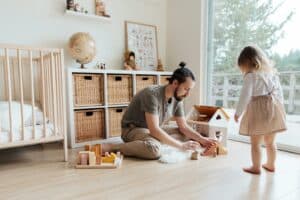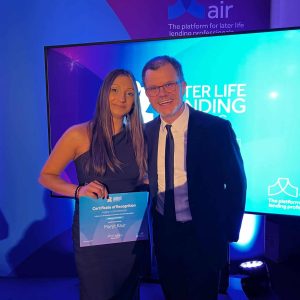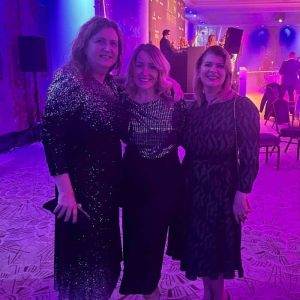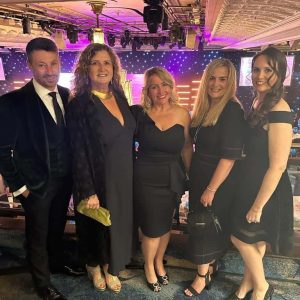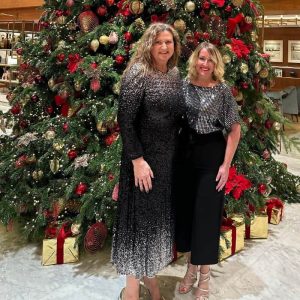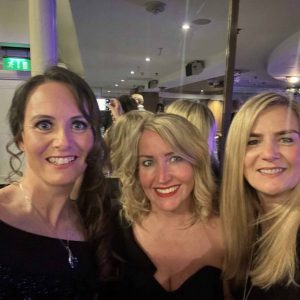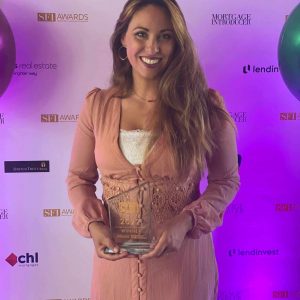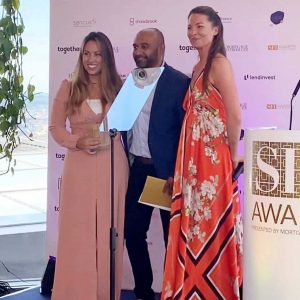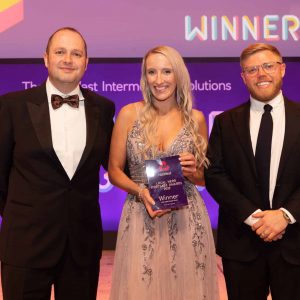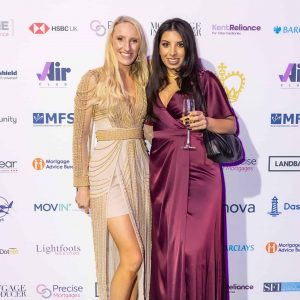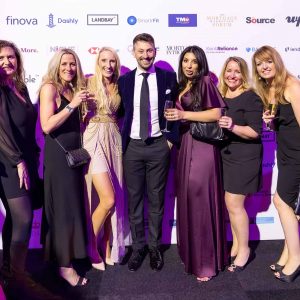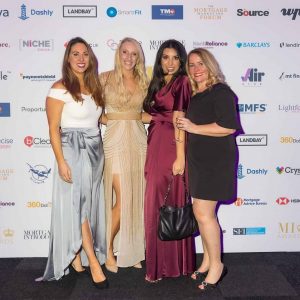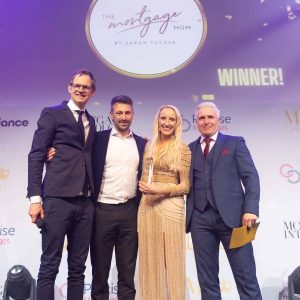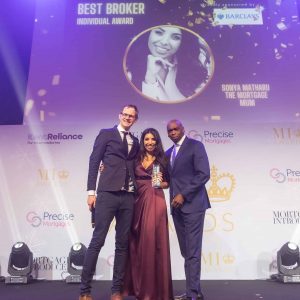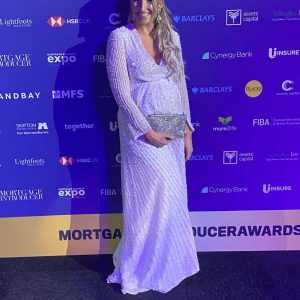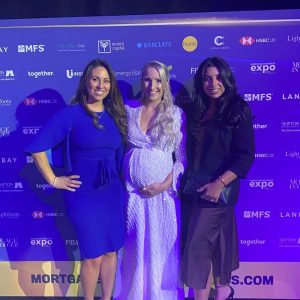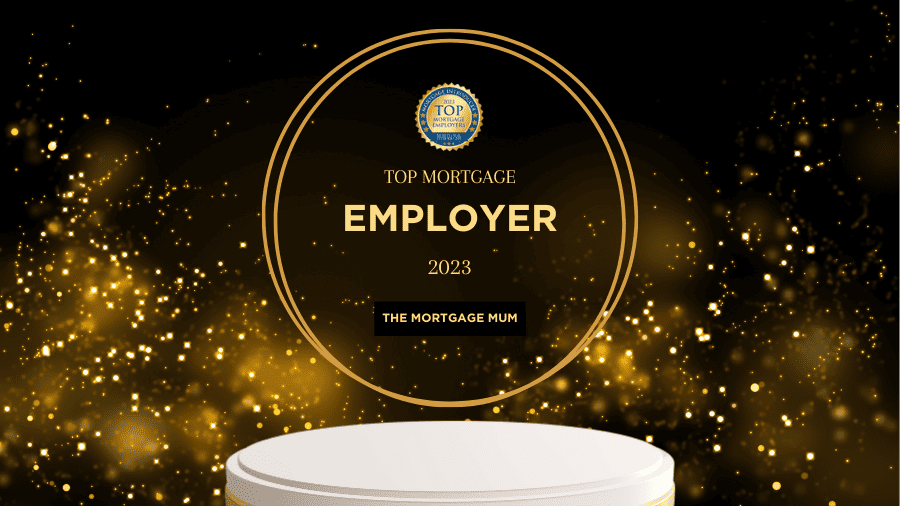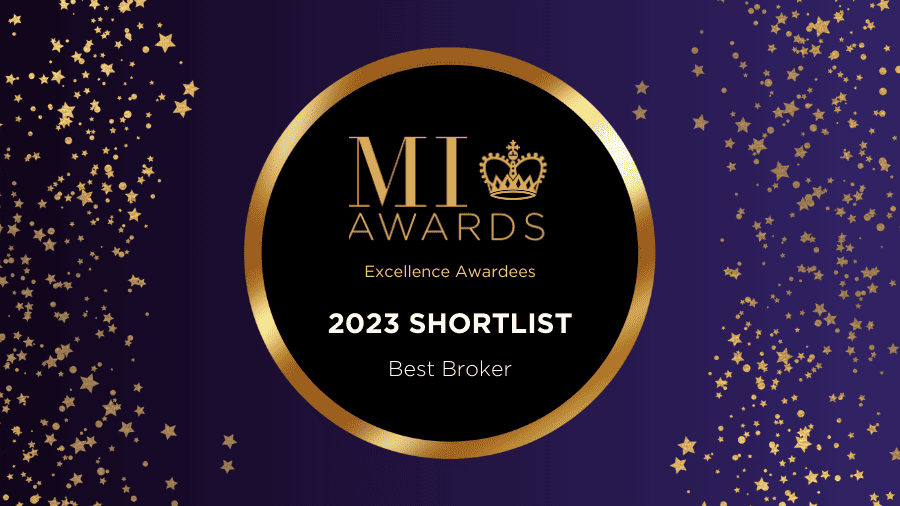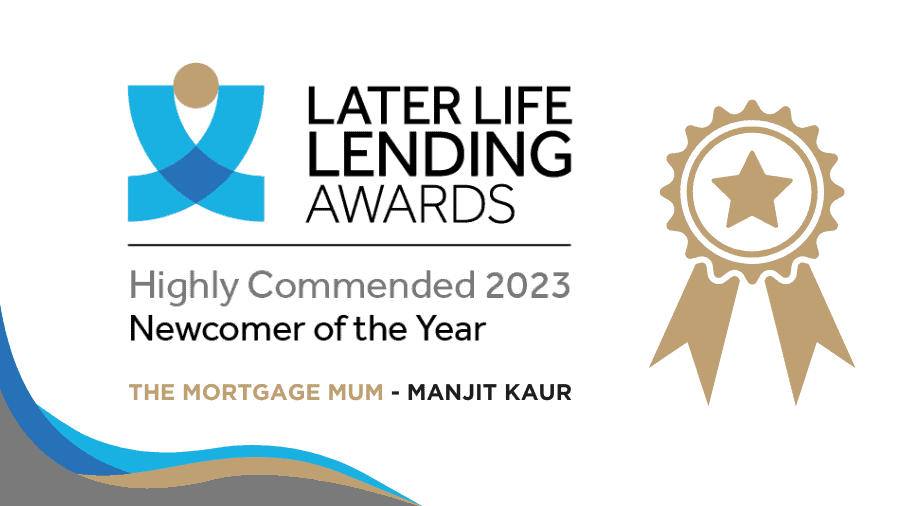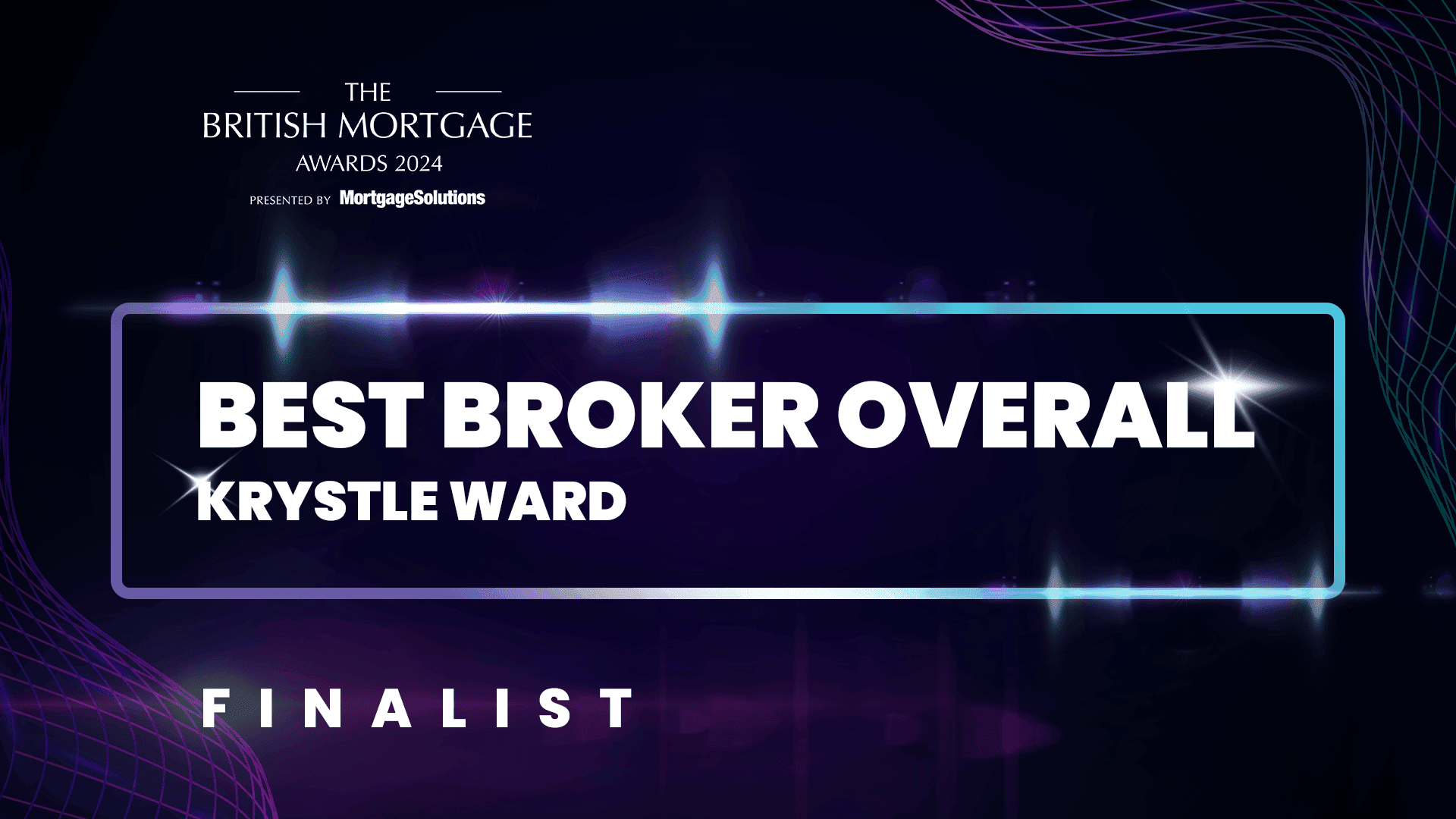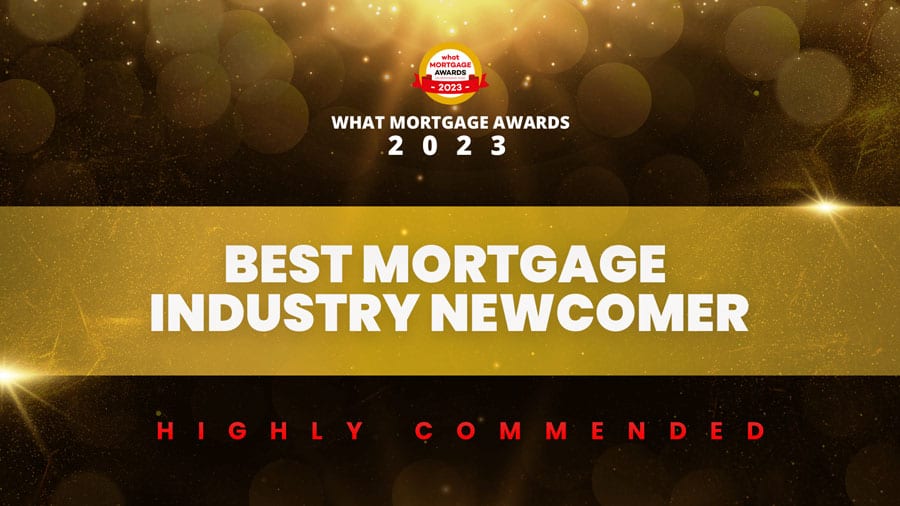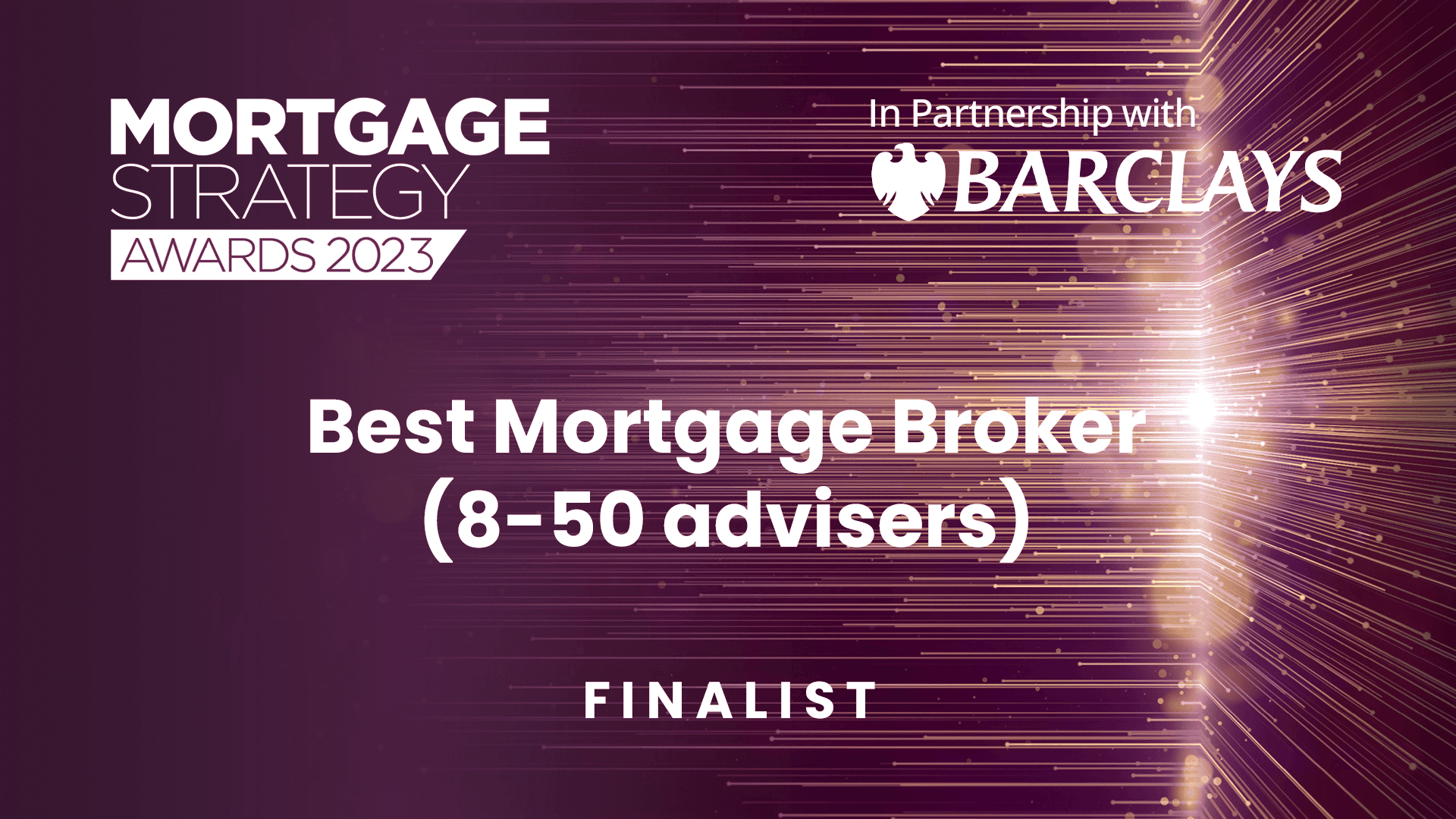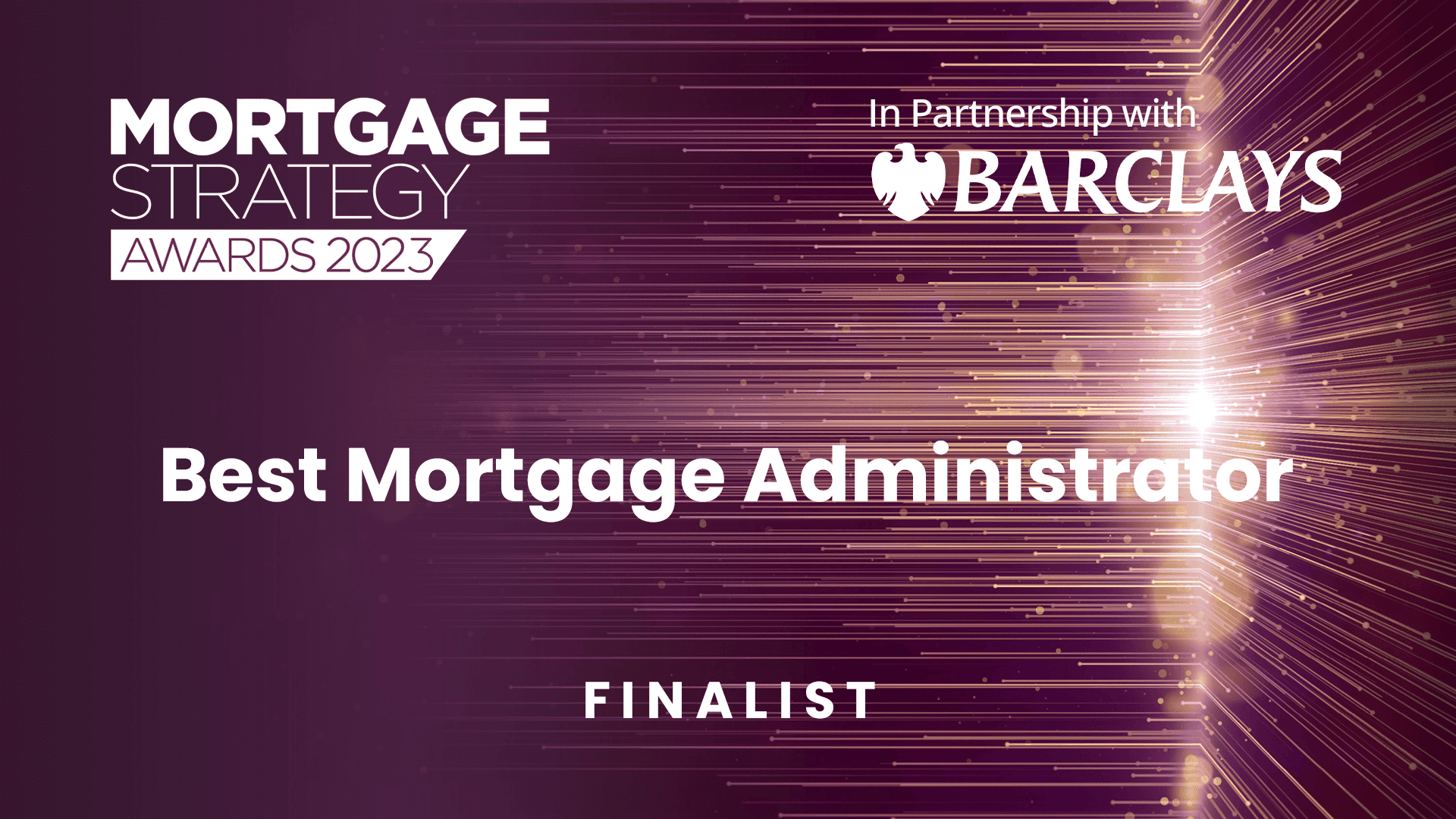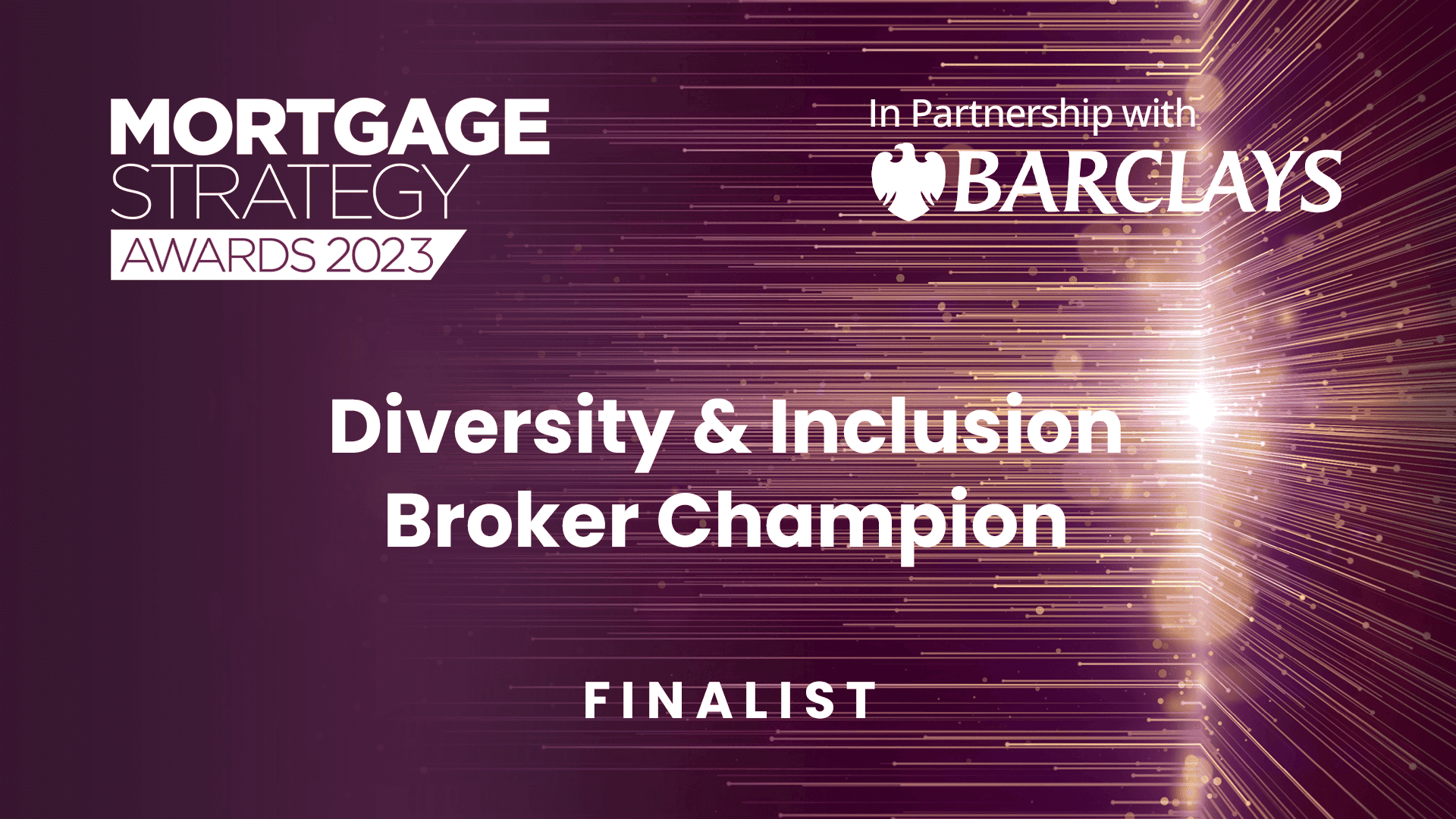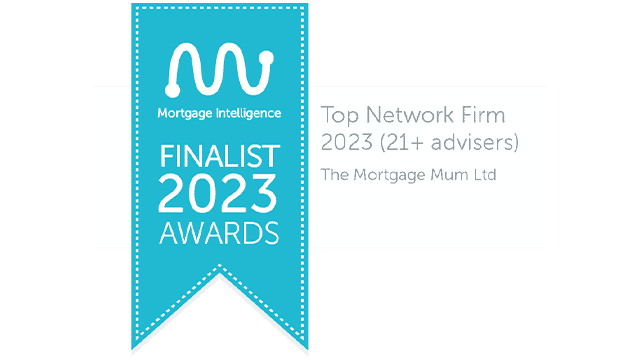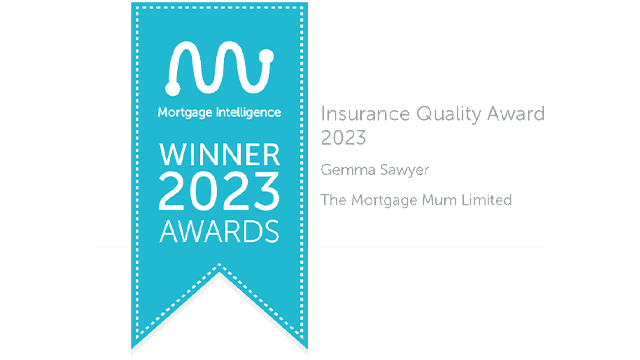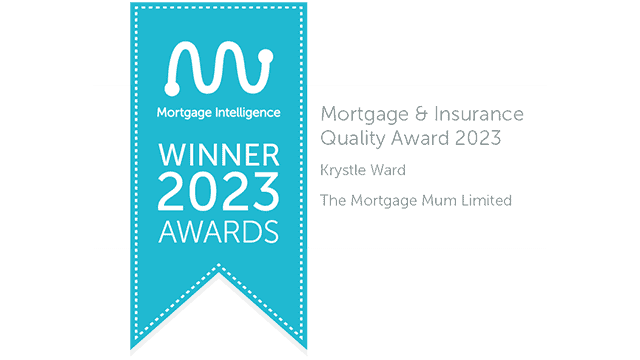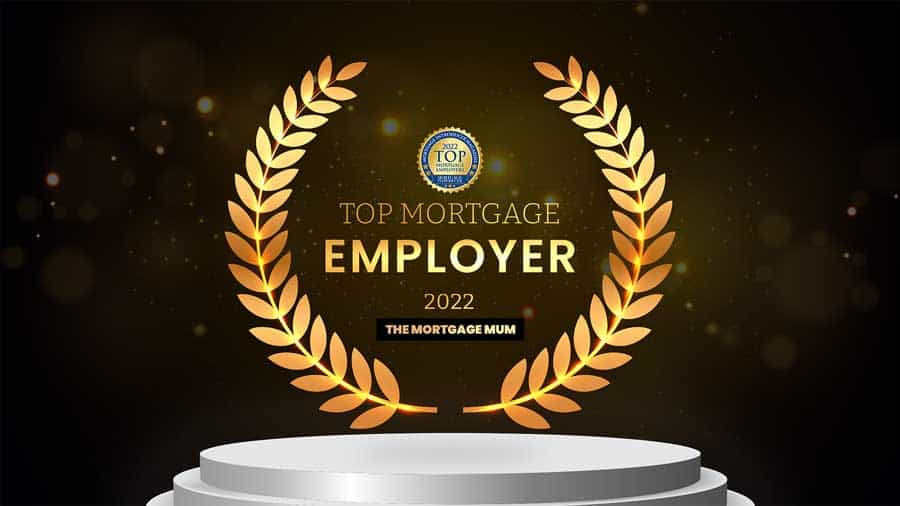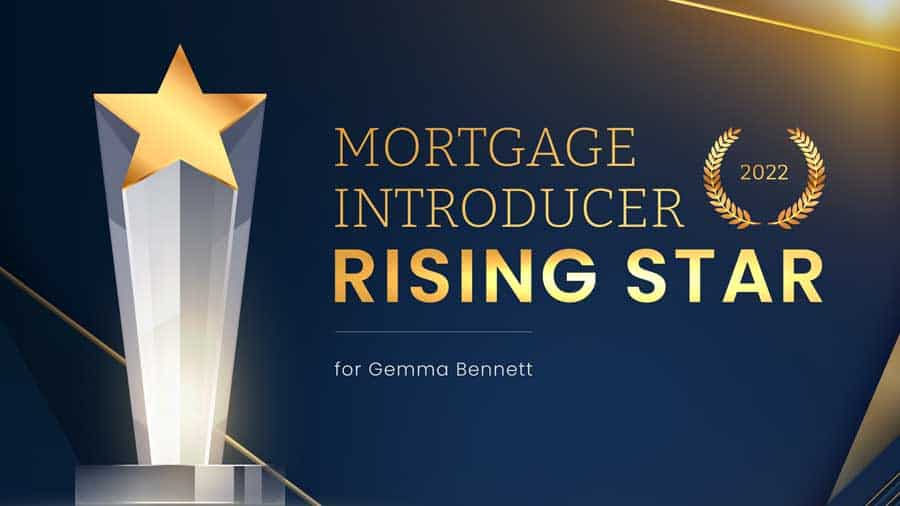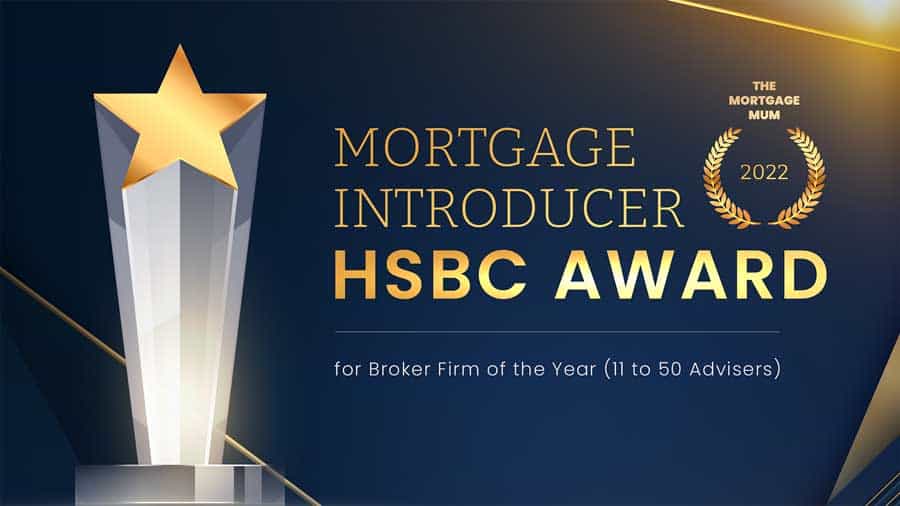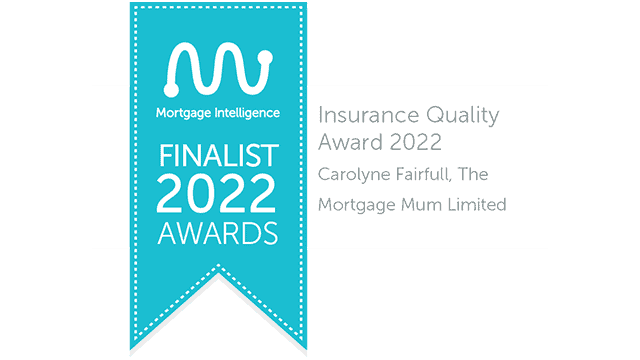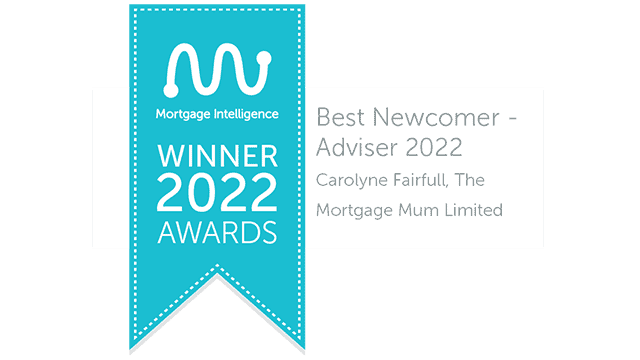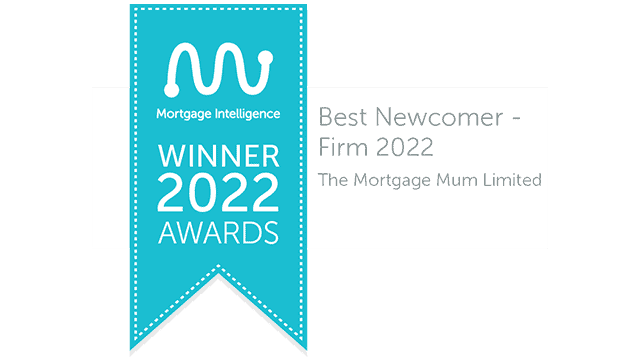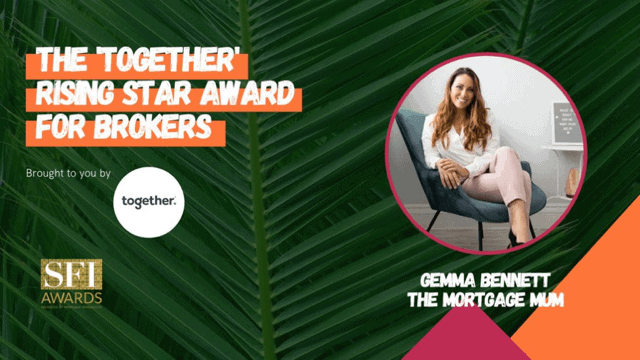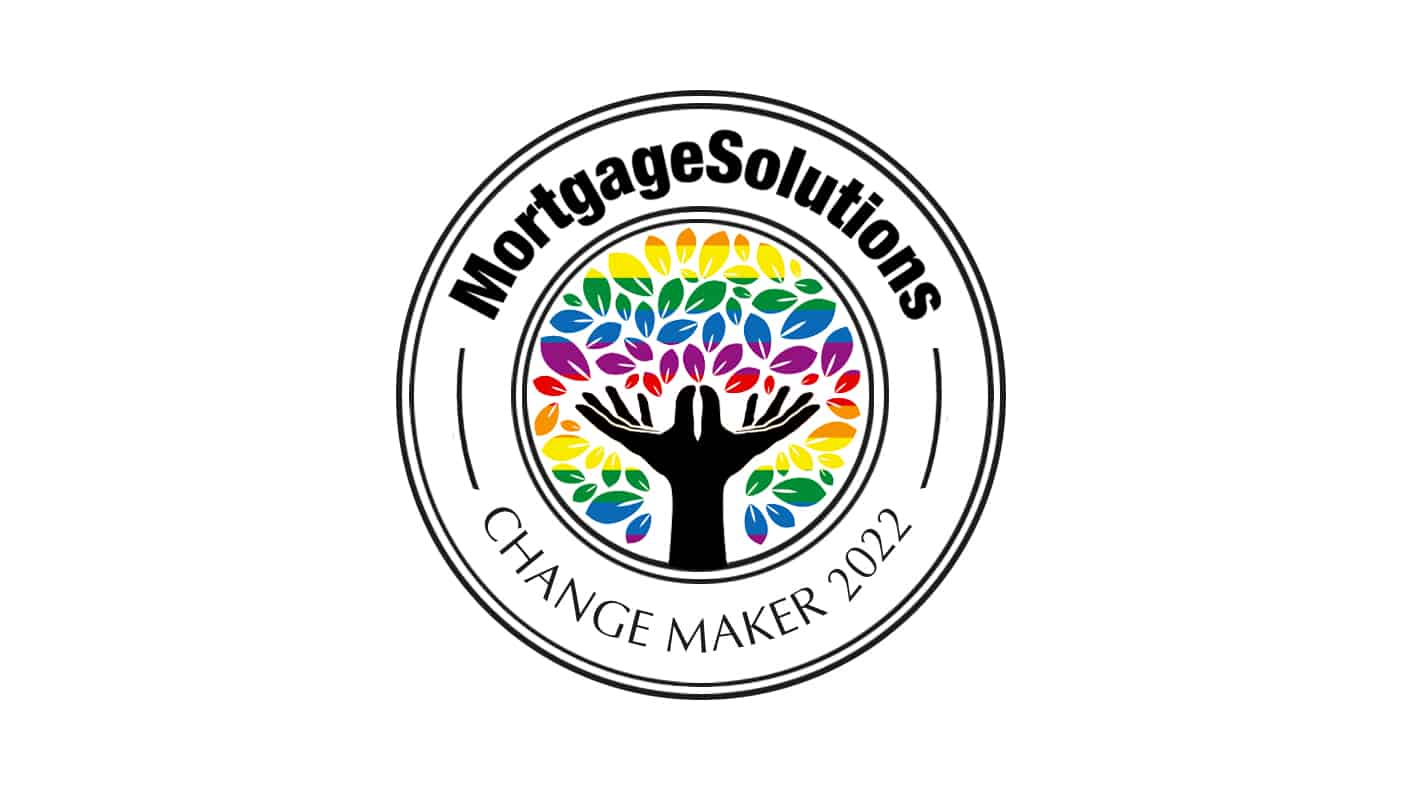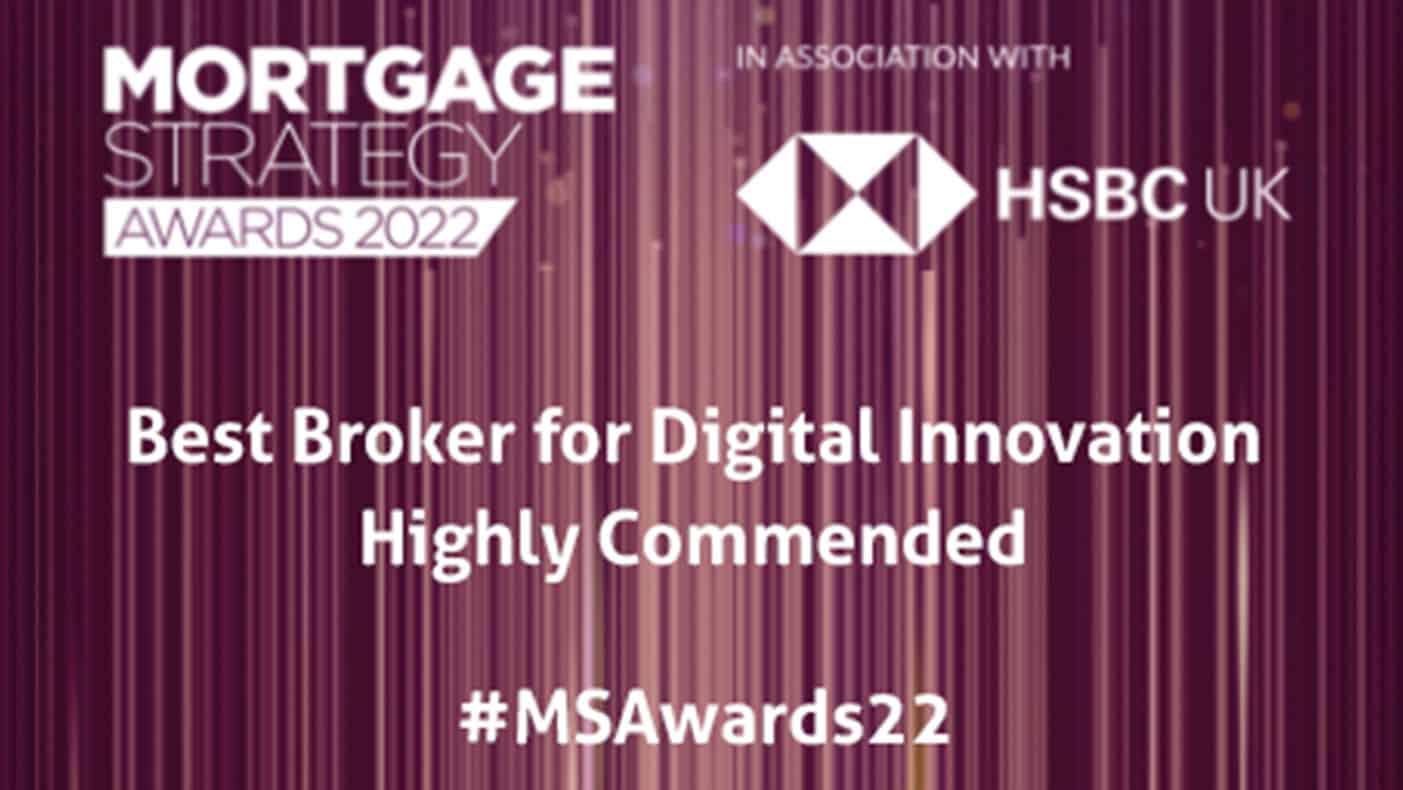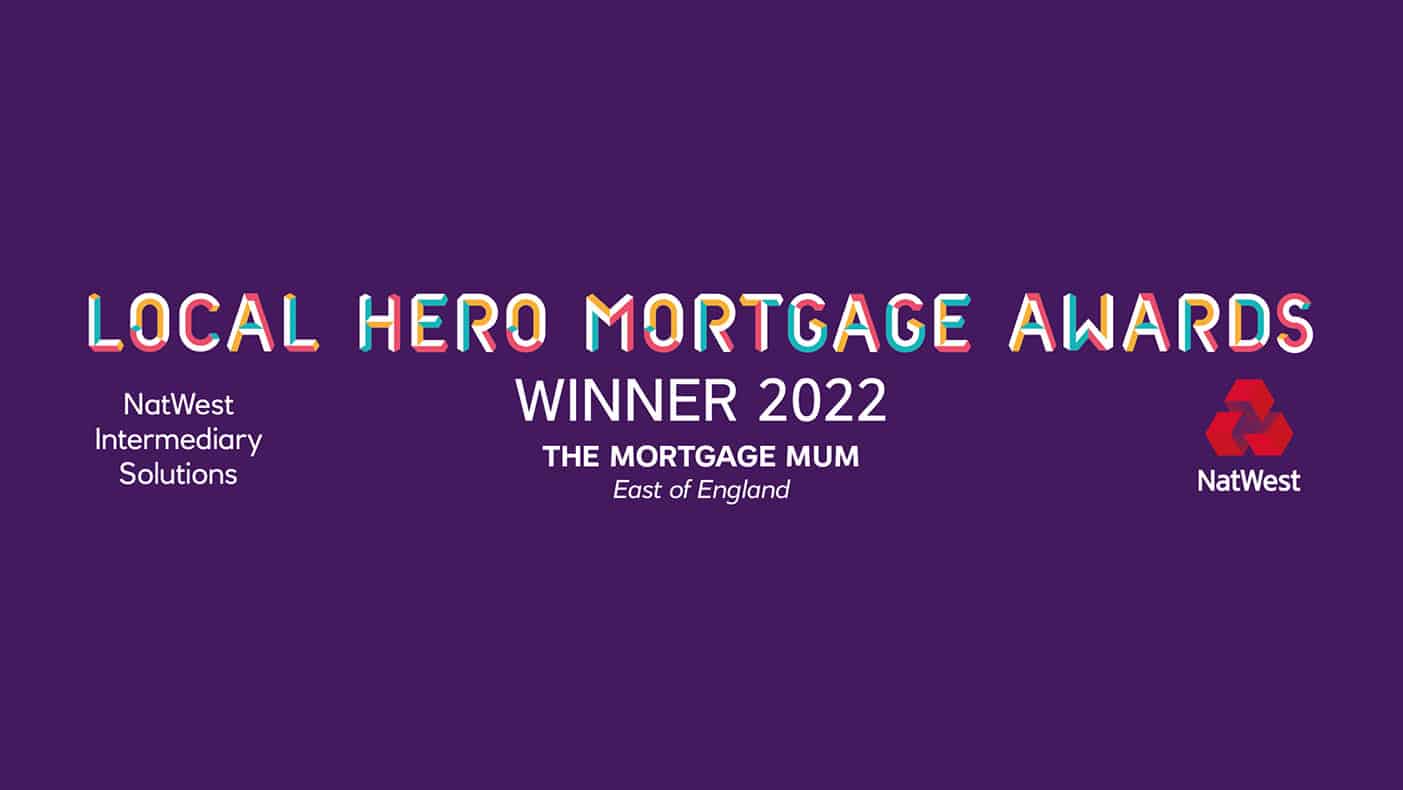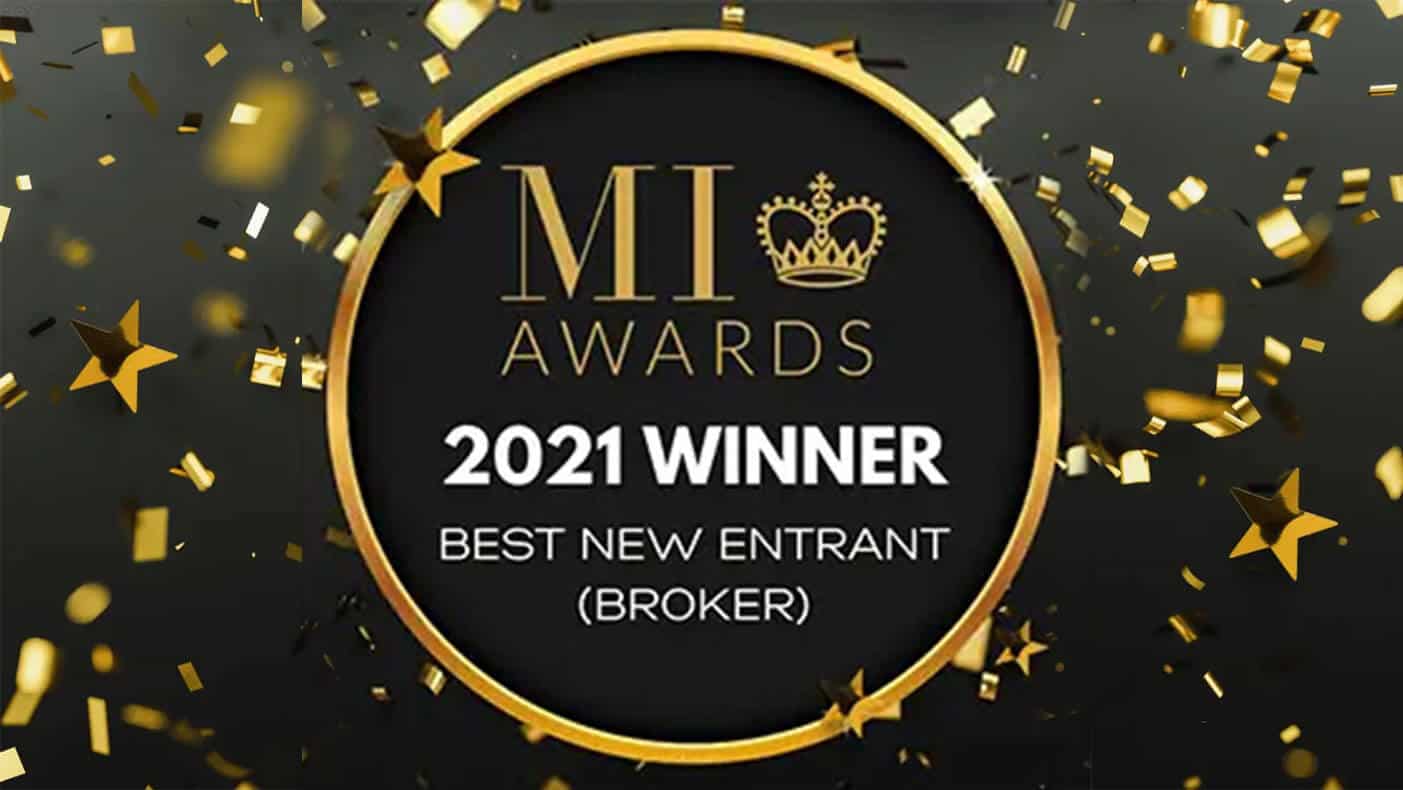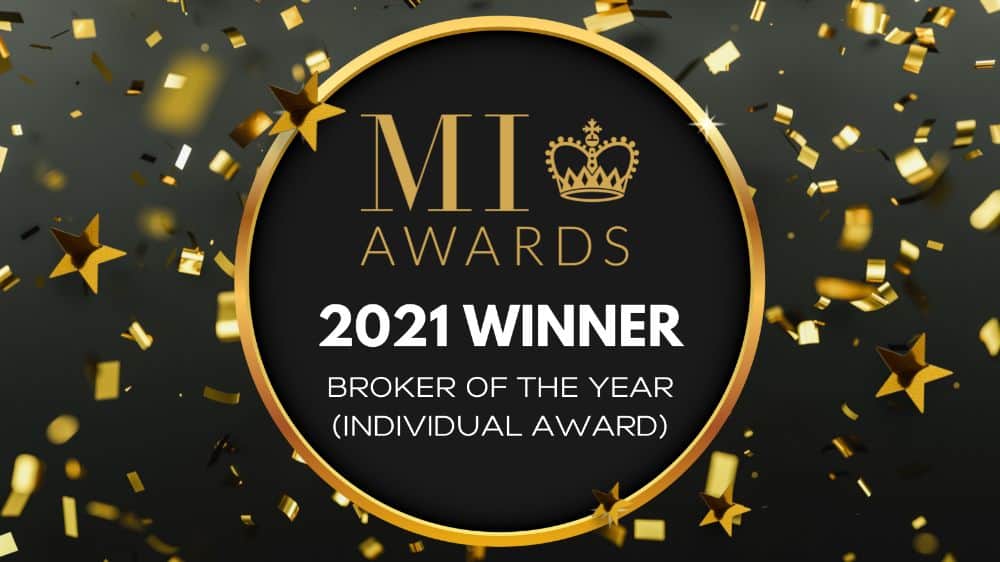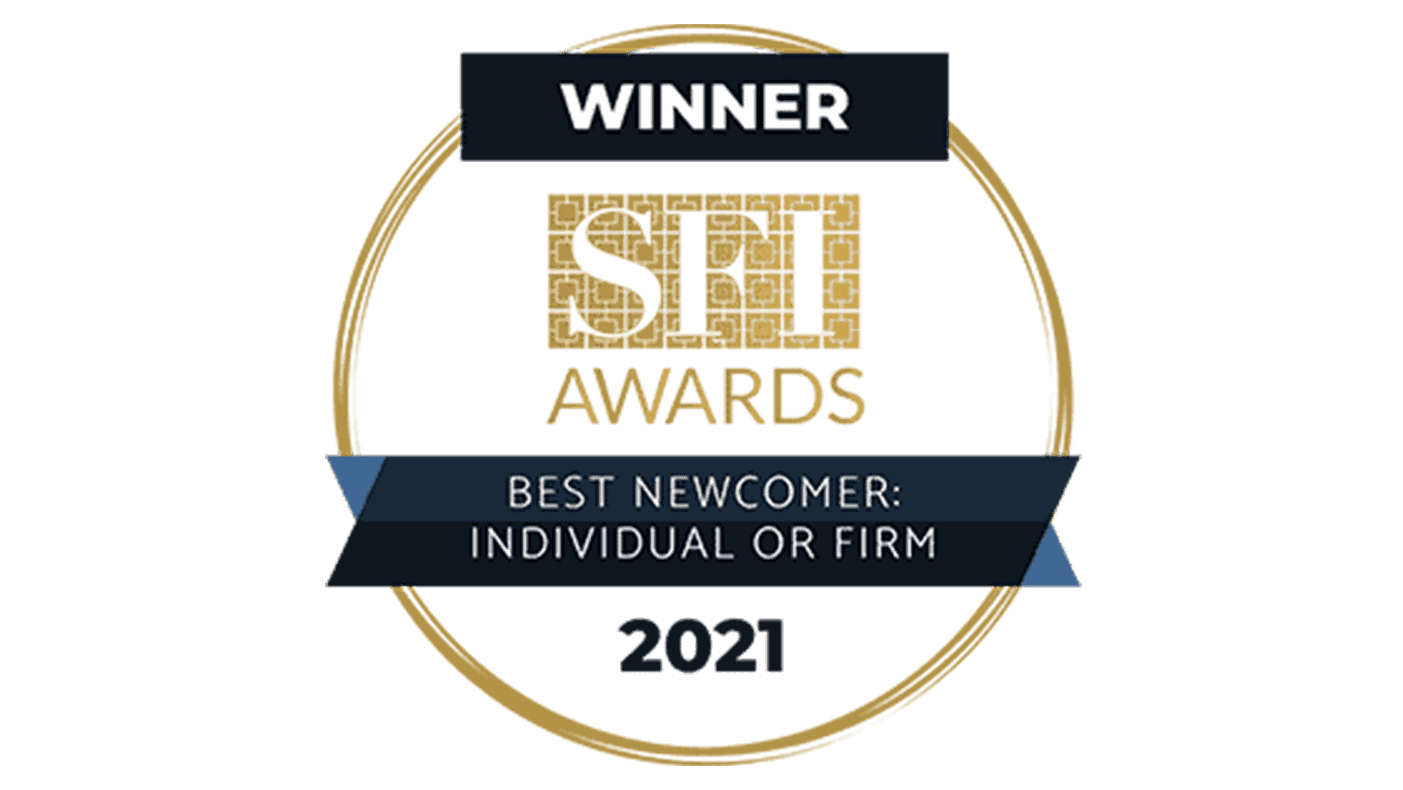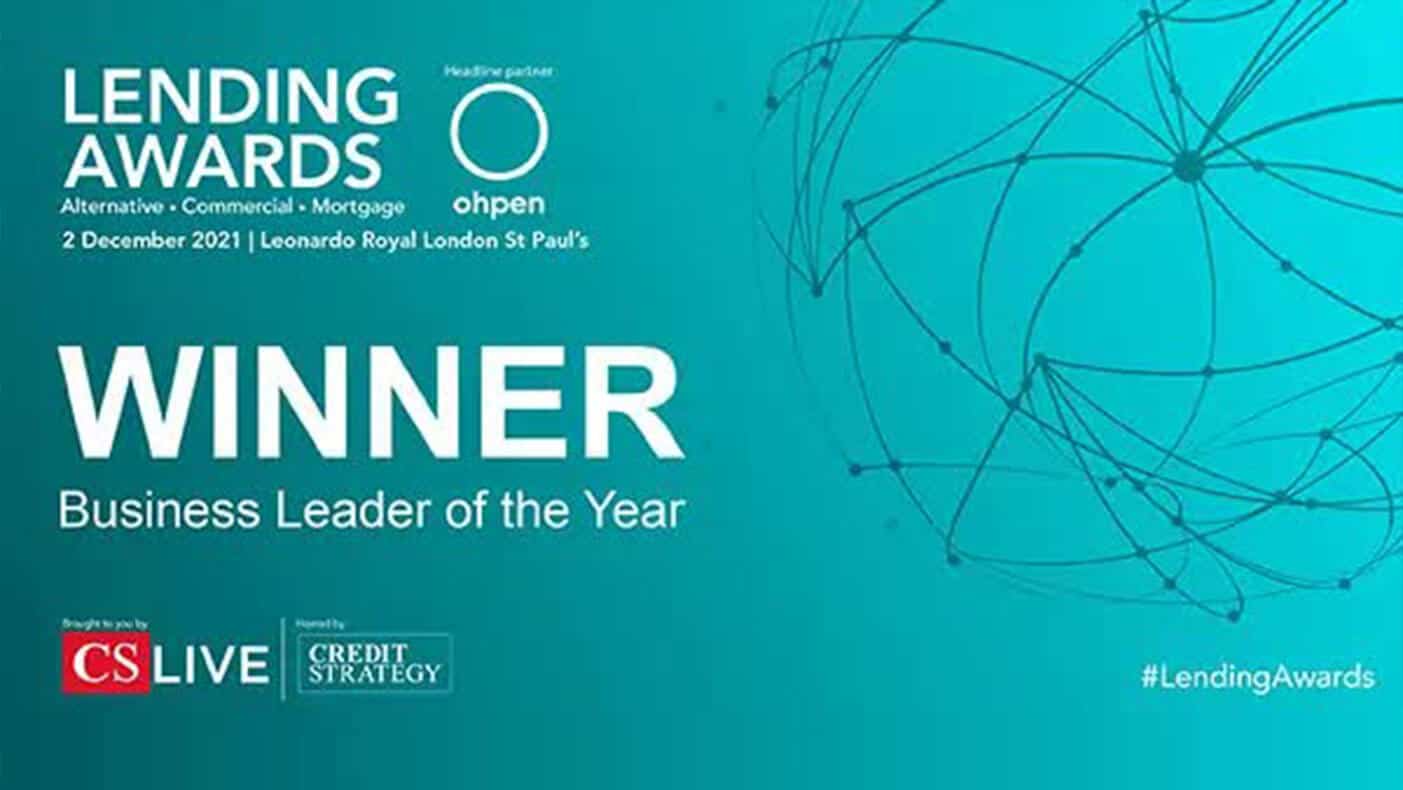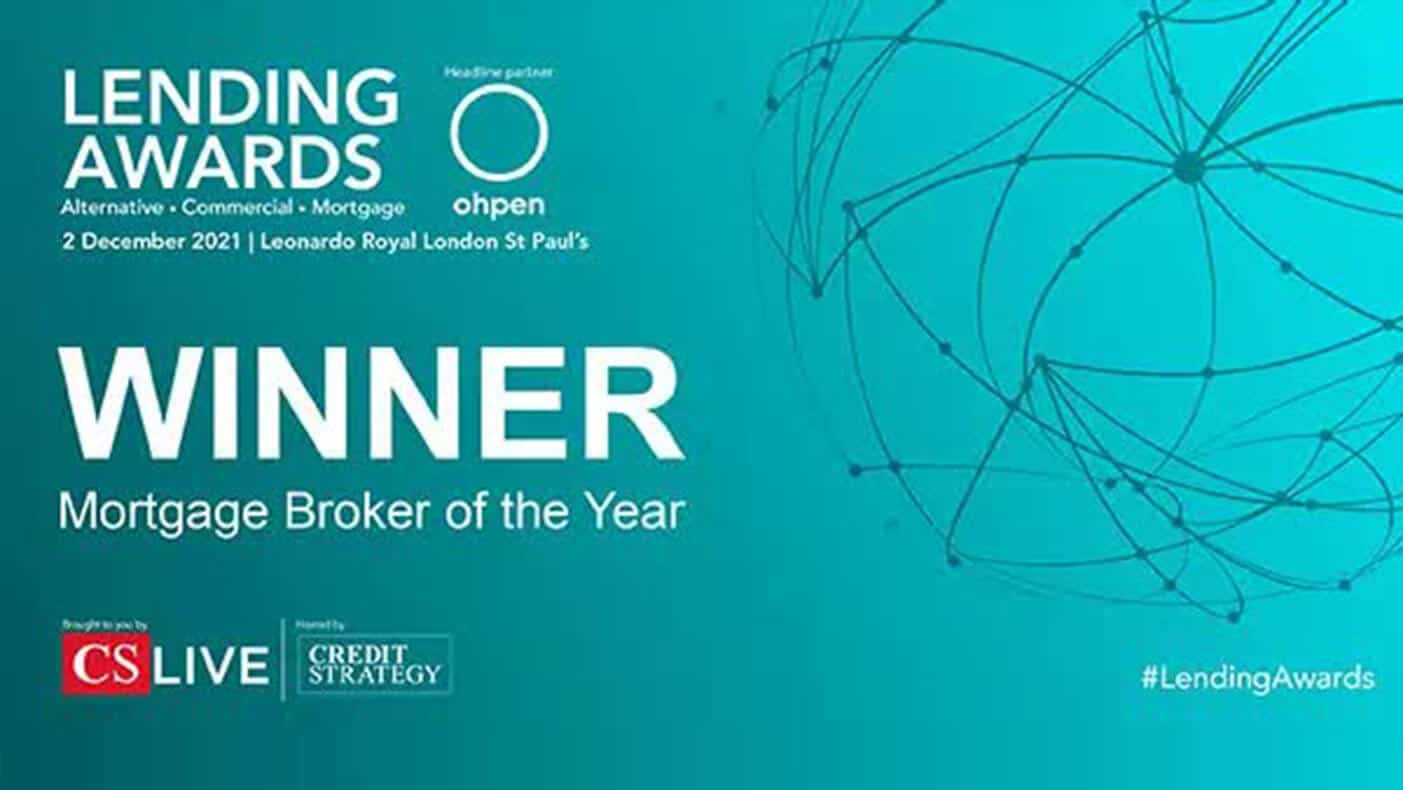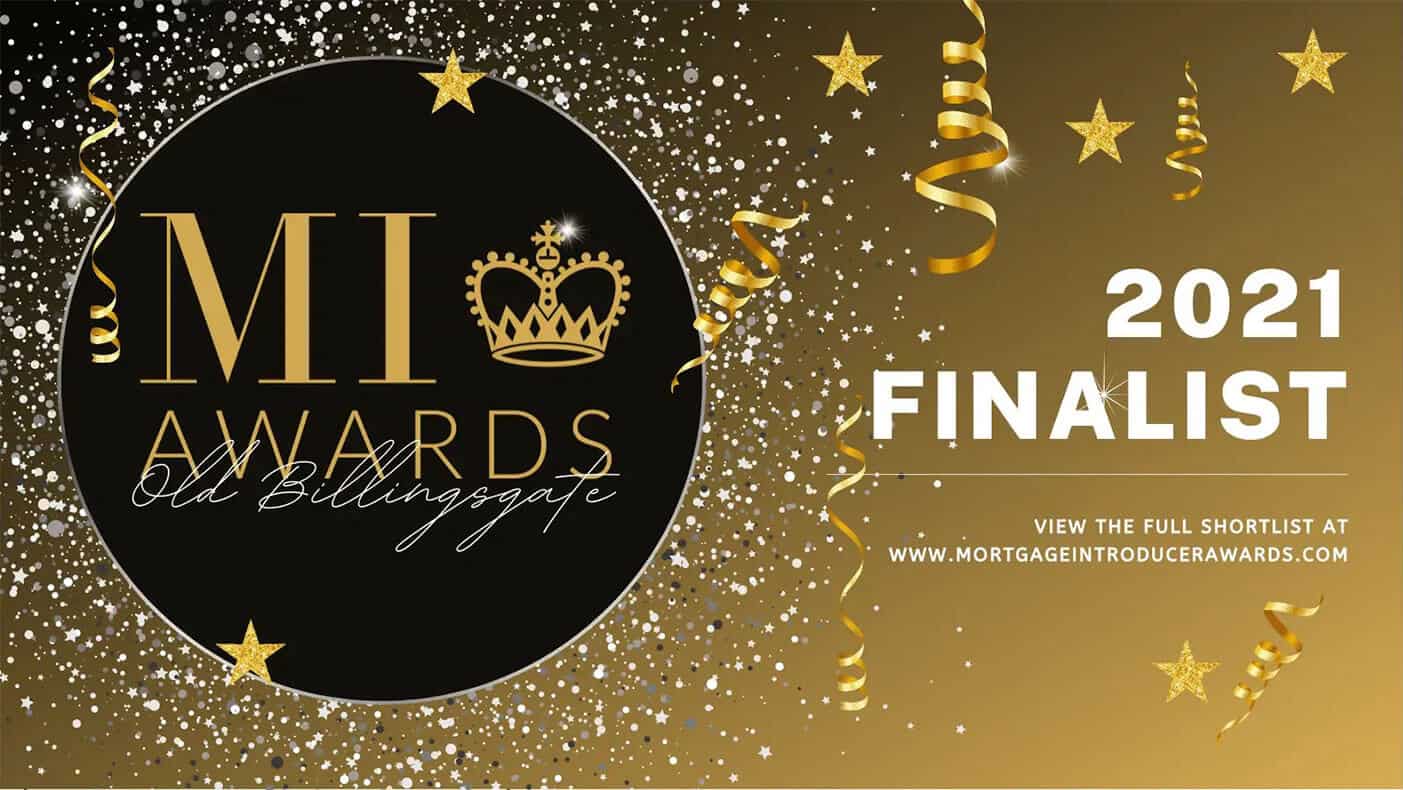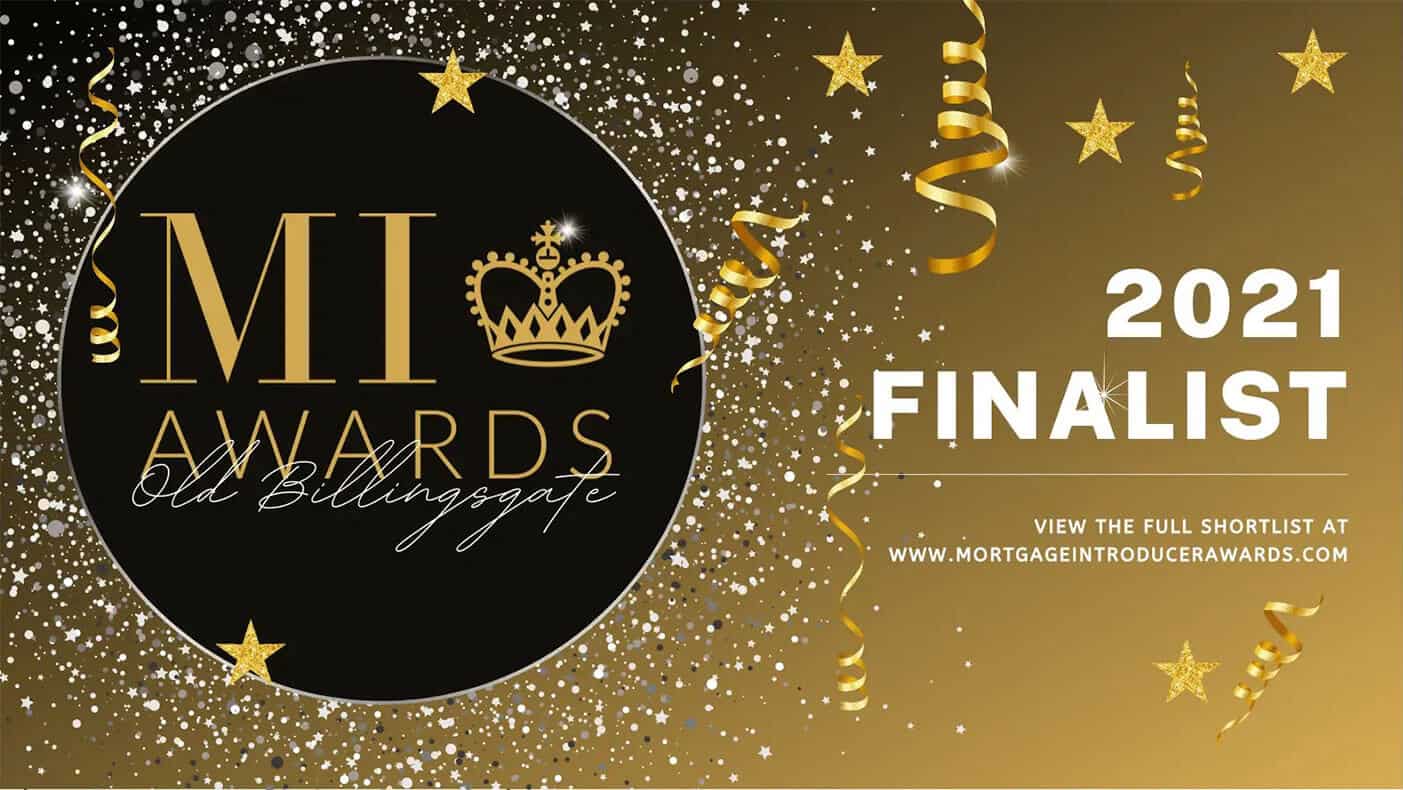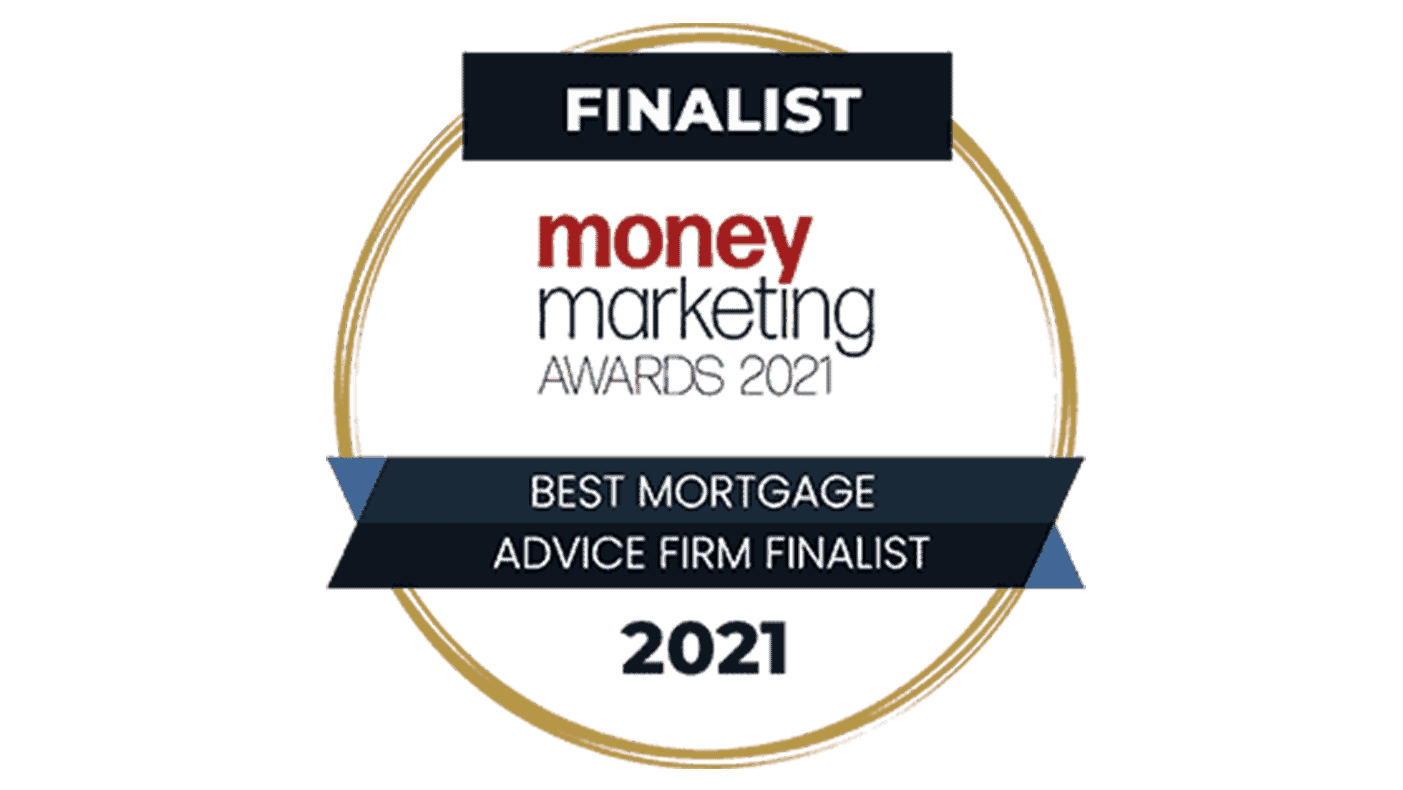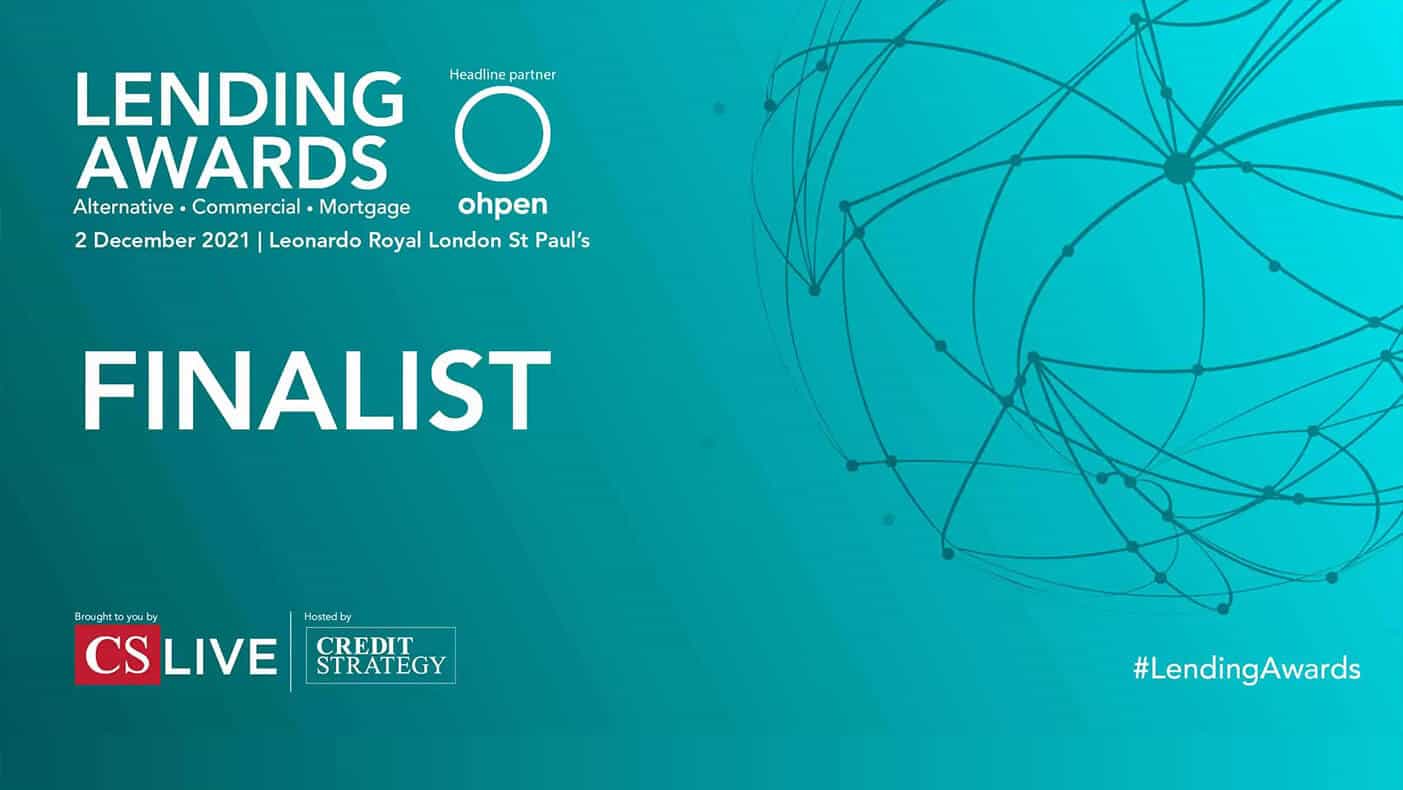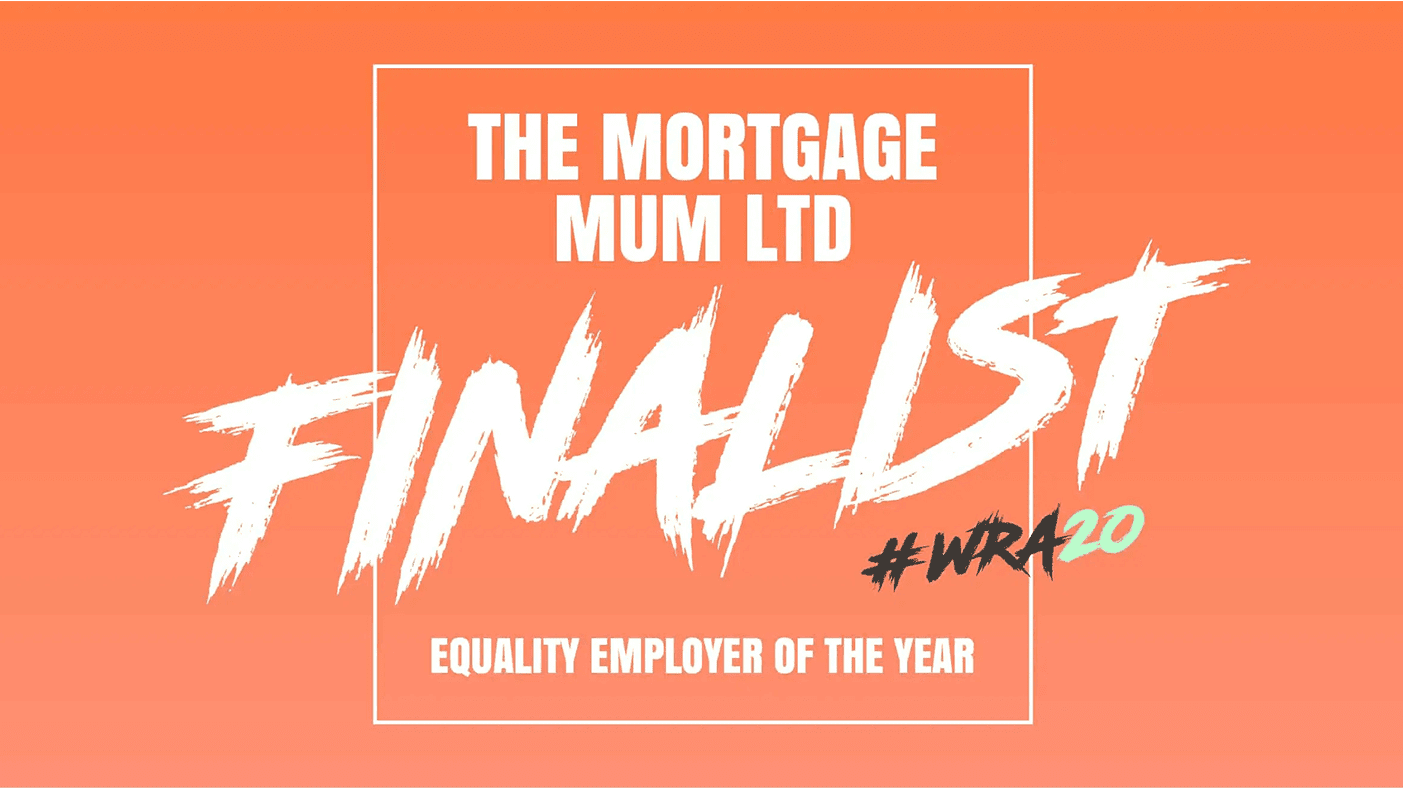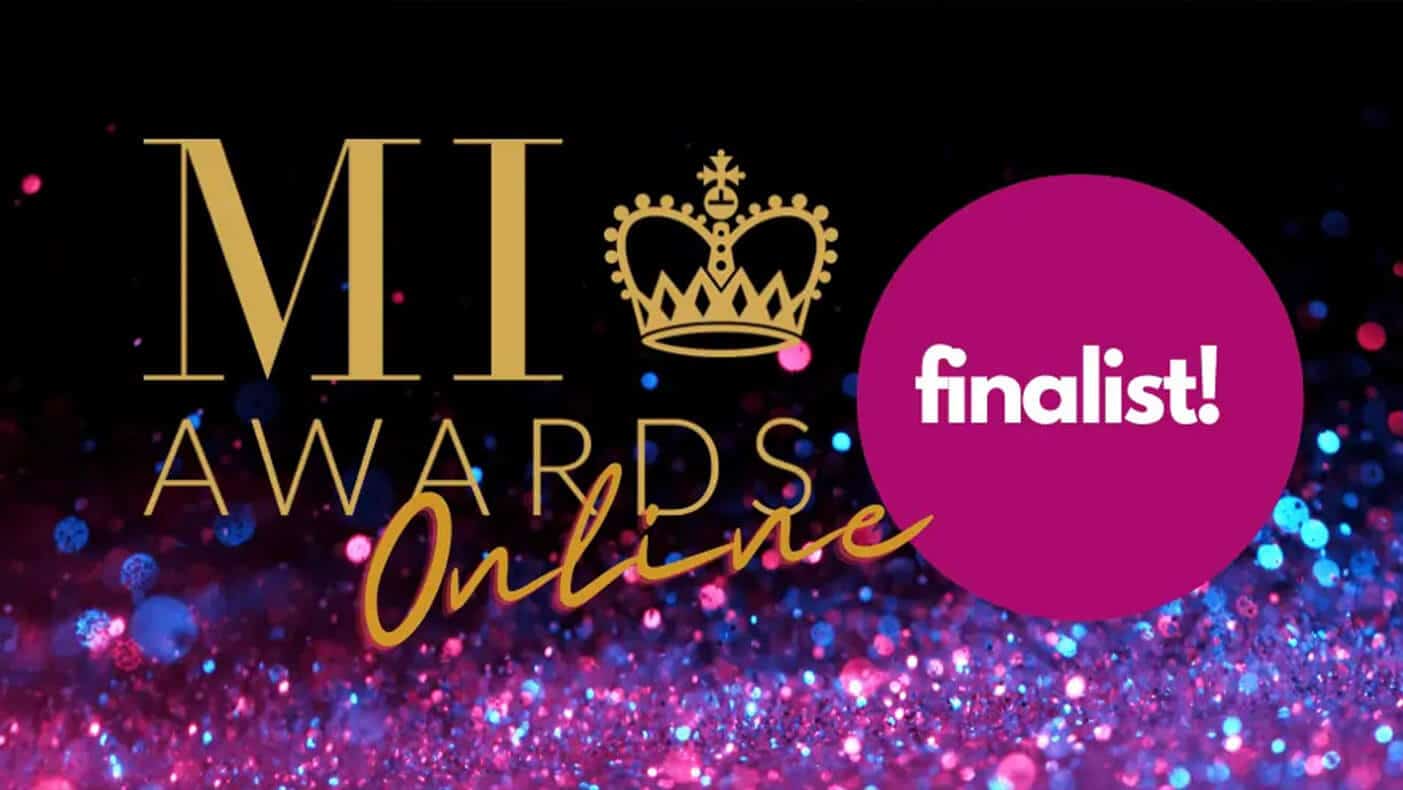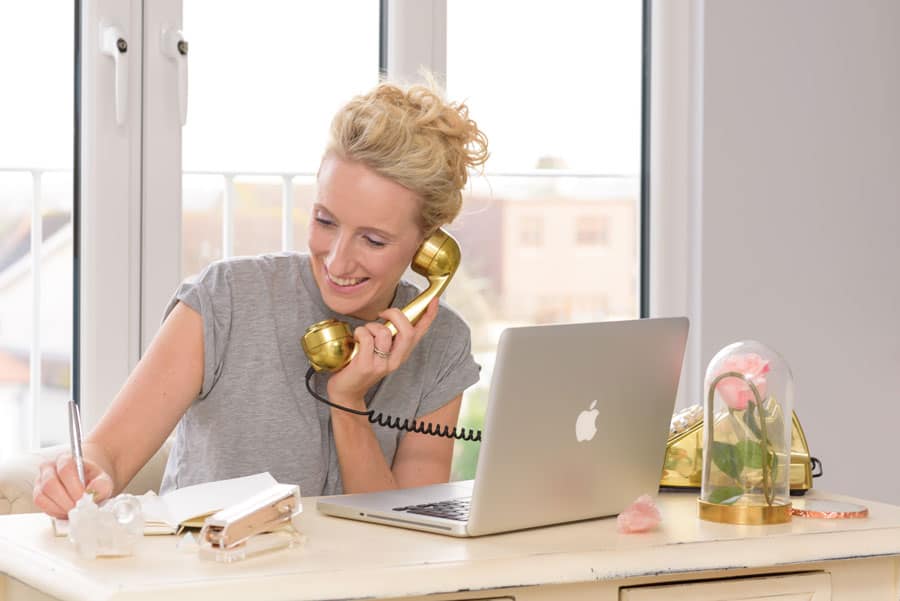In this incredible podcast episode, Sarah Tucker interviews Catherine Morgan, CEO of ‘The Money Panel’, a Multi-award winning Qualified Financial Planner & Financial Coach for Women, a Podcaster, a Trainer & Keynote Speaker and a Business Leader – Featured as One of the top 32 female entrepreneurs to look out for.
Available now on all major podcast platforms, search for The Mortgage Mum.
Catherine Morgan is a multi-award winning qualified financial planner and award-winning financial coach, on a mission to reduce financial anxiety and increase financial empowerment & resilience for 1 million women around the world.
She produces content for women and an award-winning International Financial Coaching training programme to financial advisers to help change the financial services industry to focus on people not money.
Recent winner of the December 2019 ‘Best New Business’ in National Business Women’s Award and featured as one of the top 30 female entrepreneurs to watch in Business Leader.
She is the founder of The Money Panel and The Money Circle ® Membership.
In 2019 she won a Highly commended award for ‘Role Model of the year’ in the Women In Financial Services Awards. In 2018 and again in 2019, her Money podcast was nominated as a finalist for UK Money Blogger SHOMO award for Best Money Podcast… this is now an official Podcast called ‘In Her Financial Shoes’ on iTunes & Spotify with over 74k downloads. In 2019 she won ‘Best New Business’ in in the National Business Women’s Awards. She has been featured in Forbes, The Telegraph, The Times, Stylist, Good Housekeeping, Closer, Readers Digest, Stylist, The Daily Mail and Huffington Post. She also is a Co-author for an Amazon best-selling book, ‘The Woman I’m becoming,” inspiring teenage girls as they approach life’s challenges and crossroads.
In 2019 Catherine has joined as a Director for the Executive of, ‘Initiative for Financial Wellbeing.’ The initiative is to bring people together under the umbrella of money and happiness, to help clients to become happier not just wealthier.
In today’s episode Sarah and Catherine talk about:
- How and when our money habits start
- The relationship we all have with money and how we can change it
- Catherine’s incredible story to her business including her experience with Sepsis
- The Money Quiz – link here: www.themoneypanel.co.uk/quiz
- and so much more.
Let us know what you took away from this episode, and this extraordinary woman!
If you have any questions for Sarah following this podcast please email sarah@themortgagemum.co.uk or contact Sarah on social media.
The Mortgage Mum is a team of 20 female brokers based all across the UK. They are passionate, driven, enthusiastic women who thrive from helping customers achieve their property dreams. They educate, empower and they give an excellent service from start to finish.
Thank you for listening.
Our beautiful intro and outro piano music was created and recorded by the incredible Zoe Alexandria – www.zoealexandria.co.uk. Please check her out on social media. She is so talented.
If you would like to appear as a guest on The Mortgage Mum podcast please email sarah@themortgagemum.co.uk.
FULL TRANSCRIPT BELOW
Welcome to the mortgage mum podcast with me, Sarah Tucker, founder of the mortgage mum, where we believe mortgages are about more than just money. Join us every week where we will share with you. Bite-Sized tips, interviews with inspiring people inside and outside of our industry and tools to help you achieve balance in every area of your life.
[Inaudible]
Welcome to this very special episode of the mortgage mum podcast, where we are going to be interviewing
The one and only Catherine Morgan. Now, if you haven’t heard of Catherine Morgan festival, where have you been? But second of all, I think you will want to know more about her after today’s episode. Catherine is a multi award-winning qualified financial planner and award-winning financial coach, and she’s on a mission to reduce financial anxiety and increase financial empowerment and resilience for 1 million women around the world. She produces content for women and an award winning international financial coaching training program to financial advisors to help change the financial services industry, to focus on people, not money. And obviously if you know anything about the mortgage market, you know, that that is right up our street. First of all, we want to empower you with education about money and mortgages. And second of all, we want to show you that mortgages are about more than just money and money is about so much more than what we realize, how we feel about ourselves is often how we feel about money.
So Catherine’s morals and values are so in line with ours, I had to try and get her on the podcast. And I was thrilled when she accepted. She’s also the founder of the money panel, which we will talk about in this episode and the money circle membership, which I am a member of and can say firsthand. It’s very, very good. It has some great content in there, and I’m still working my way through everything, but it is a really lovely space. It has a great feel to it, which is important. Catherine also has her own podcast in her financial shoes, which I would highly recommend. I’ve listened to it for a while and learnt so much. There are so many nuggets in that podcast about money, about people, and there’s some great interviews on there as well. So I think you’re going to absolutely love this episode with Catherine.
And I think you’re going to get a lot from it. We talk about her story to financial services, her own money blocks, and they really resonated with some of mine. And I’m sure you’ll feel the same. We talked about her story with her son experiencing sepsis, which really was a very, very touching story and how this led to her doing what she does now and making that huge leap of faith to leave the banking world behind her and start something new. So I think you’re going to love it. I hope you take, please let me know what nuggets of information you get here and have a look at our show notes. If you want to know how you can get in touch with Catherine. Thanks so much. Thank you so much, Catherine, for agreeing to be on the mortgage mum podcast. It is such an honor to have you on here. I’ve listened to your podcast in her financial shoes for a long time. So I’m very excited that you are
Thank you so much for for having me on your show. It’s a delight to be here, Sarah,
For those of you who have never heard of you or listen to your podcasts without show, there’s not many people that haven’t heard of you. Can you tell us a little bit about who you are?
Yeah, sure. So so my podcast is in her financial shoes, we launched that in January, 2019, really on a mission to equip and prepare a million women to be financially resilient. So reduce their financial anxiety, talk about issues around how we feel about money, because actually it’s never about the money it’s really to do with the meaning that we attach to money that then really aligns to our own relationship with money. So we’ve all established our own relationship with money by the age of seven, which I think is really, really interesting in itself. And certainly for me growing up, I had a terrible relationship with money, excuse me. I’ve been in financial services since I was 18. And in my early twenties, I was a financial advisor. I still am a rent regulated financial planner. And so I was giving people advice on how they should be managing their money and growing their wealth and investing.
But I wasn’t doing it for myself because I was in a huge cycle of over spending. So I used money as a tool to fill a void in my life that I wasn’t paying attention to. I didn’t want to think about traumas and things that had happened in my past. I didn’t really want, so I just buried my head in the sand because it was familiar and it was comfortable. And, and so I lived in a cycle of debt for over 10 years and you can imagine the added guilt and shame and responsibility around money being in financial services. And I speak to lots of different financial advisors and accountants and mortgage advisors who have a very similar path because just because you’re an expert in your field, doesn’t necessarily mean that you’re not human and that you don’t necessarily think about your own relationship with money.
And so for me, my journey really began when was actually sitting in a little cottage in Jersey in the channel islands, I was working and living out there managing a team of financial advisors. And on this particular day, I’d had this image consultant. It’s like a personal stylist round to my house to weed out my 12 wardrobes of clothes and all of the drawers underneath my beds and all of my, all of my bedside cabinet, everything was just put on clothes. And that evening I sat down on my couch and I just cried my eyes out because it was like finally someone had given me permission to get rid of all the crap that I’d been hoarding for years and years and years thinking and hoping that getting into that cycle of buying clothes would make me feel better about myself, that it would improve my self worth.
And that was the first major lesson that I learned about myself was that your self-worth is not connected to your net worth. But how we found about ourselves is not a reflection of who we are. And yet we seem to give money. This, we seem to put money on this almost like pedestal of power. And we allow money to guide us in making decisions about our life. And actually money is just a thing. It’s a physical piece of paper. It’s a coin, you know, it’s a tool, but yet we place so much power in the hands of money and so much emotion, so much meaning to money when actually it’s not meaning that creates it. It’s how we feel about ourselves. And that was the first time in my life that I reflected on the fact that I’d spent so long giving money, power, giving my power away to money. And, and it was a real, like literally light bulb moment of finally, I understand what is it I am trying to do by buying more and more and more clothes are living in my overdraft every month. And that was kind of the start of my journey.
Incredible. And actually a lot of that resonates. So I’m sure other people are going to listen to this and think, Oh, that’s me. Or that was me. I love the tagline about the self-worth and the net worth. That’s just, you know, when you get phrases and you hear them and you think, yes, that’s created its own light bulb moment for me. So thank you so much for that. I think yeah, I think lots of us can, can relate to that. So what were the next steps then that you took from that moment? Because there’s one thing to have a light bulb moment, but then you have to take action to make change. So what were the first sort of action steps that you started to take?
Yeah, so really good question. And I often get asked this on podcasts interviews and it was never really like a big conscious, it was just small steps. And, and I think for most people who listen to people’s journeys, they think that there must have been this one massive change that they created. And it was just like, almost like crumbs. It was almost like I was seeding these little crumbs along my path and I would change something and then something else would happen. And then I would change that and then something else would happen. But certainly a big part of it for me was what I call financial wellness. It was just actually bringing some awareness and curiosity to what my beliefs were around money. What was my relationship with money? What sort of things did I hear about money growing up? What sort of things did I not hear about money growing up?
What, what was I connecting money to? So I connected money to perfectionism. Perfectionism comes out to play a lot in my life. Even now I have to work on this every single day, because when I was growing up, I was, I heard several things. I was always that little girl in school that had put her hand up and said, I know, I know, I know like, like the little donkey and Shrek. I know the answer, I know the answer. And I was always told to be quiet, be quiet. I was also told growing up that you have to work hard to make money because I saw that in my parents, my dad was an entrepreneur, is an entrepreneur worked very hard in his business. He was a workaholic and my mom had a part-time job. So she could look after us as children.
Some by very much, I was very close with my dad. So I always looked up to him and looked at his behaviors. And this is how children learn. Children learn about money through what they see, not what they hear, what they see. And so, although some of you listen to this may have heard messages like money doesn’t grow on trees. Only rich people know which people are greedy. What happens is all these messages and observations that we make as children up until the age of seven become our beliefs. We don’t even question them. They’re just black and white fact or fiction. We just take them as our beliefs and they then form the blueprint by which we operate. So what most people do is they, they focus on the behaviors. They focus on the action. They focus on, what do I need to do to make more money?
When actually before you even look at your behaviors, you have to think about what are you telling yourself? What do, what are your beliefs around money? Because if your beliefs on right or true, or self-sabotaging in some way, then the behavior is always going to remain the same. So for me, the first thing was actually understanding why I made certain decisions. What was the meaning that I was attaching to money. And the meaning for me was that having more money would mean I’m more successful. Having more money would mean more people would like me. And that was important to me because I was really badly bullied at school, physically bullied on separate occasions. And that led to years of eating disorders and the eating disorders led me to buy clothes because I wanted to feel skinnier, wants to feel happier with my body. And that was the reoccurring cycle.
So I was using money to make me feel protected and safe. So having more money would mean I’d feel more protected and safe, but because I wasn’t, it wasn’t familiar to me. I’d get rid of it as quickly as possible. Can you, it’s almost like a paradox. You want to feel safe and protected, but yet when you receive it, you give it all away all the way. Because then that was familiar to me. So even when I got out of my overdraft, I’d get back into it within a week because it was familiar and safe. And so I had to, I had to almost move the line in the sand from what, how much money do I need to have to make me feel safe and protected. And this is a really great exercise. If you’re listening to this, you can do for yourself.
Speak to an expert
We will work at times that suit you and your family, carrying out appointments via video call, telephone or email, giving you the benefit of first class service, around your own schedule, and in the comfort of your own home. So let us handle your mortgage today and find out how well we can look after you, The Mortgage Mum way!
You can think about what is that state of enoughness. How do you know when you have enough money to feel safe and protected and secure? What is that amount of money to you? What does that amount of money think about physically? How much do you need to have in your bank accounts to feel protected and safe, and then you can think about, okay, so if I then start to attract more abundance and money, well then straight away, that’s going to tip you outside your financial comfort zone. It’s going to be unfamiliar. So you need to be aware of that because otherwise what’s going to happen is you’re just going to give it all away or suddenly the car will break down or the washing machine when you’ve replaced it and something will happen. Now, the reason that’s going on is not because law of attraction is because of energy.
You will look for it. Your brain will look for evidence to support that belief. So if your belief is, I’m not worthy of having that money, that it’s going to get rid of it as quickly as possible. That is so that state of enoughness is something to be really mindful of. And that was, yeah, it’s true. Right? Because having that awareness, I would say is there was the first step for me having that awareness about my relationship to money, what was my financial comfort? So, and then the second stage, it was then giving money, meaning and purpose, not power. See the difference, giving it meaning and purpose, not power. So I would literally I’d create a spending plan for myself, not a budget plan cause who wants to restrict their money, right? This is about looking at creating a spending plan and giving your money, purpose and meaning.
So you imagine that every single pound coin that’s sitting in your account right now needs a job. It needs a purpose. So what job are you, what job, and what purpose are you going to give each of those pounds that are sitting in your bank account? Some of those jobs might be to pay the mortgage to pay the energy, electricity bills, council tax, but then what else, what else are you choosing for yourself to give meaning and purpose to your money? And that was the second phase. It was about bringing conscious awareness, getting financially naked. That’s what I, that’s kind of the term I use in my content, get financially naked, strip everything back, look at your beliefs, your mindset, what you’re telling yourself. And then look at the practical steps as to actually what purpose, what meaning, what power are you giving your money?
It’s just that, I mean, there’s so many nuggets of wisdom in what you’re saying. I’m so glad this is recorded because I can actually come back and make some notes for myself and importantly for our customers, because I don’t think there’s anyone that this doesn’t relate to. And your say, right, that we put so much importance on money and how interesting it, how deep it goes, you know, the close related to the eating disorder related to the bullying related to your beliefs about yourself and your self worth. It’s, it’s all so connected. And I totally subscribe to that. But hearing your story and seeing how it played out for you, it’s going to cause everybody to question, I’m sure their own, and I’m going to sit with some of the questions you’ve asked there for myself as well. Cause it’s just, yeah, it’s really powerful stuff. It’s amazing. So, and you’re now using that to educate others on how to take that journey for themselves, right?
Yeah. I mean to kind of put this into context, I think when I’d gone through that, myself and I, and I, I would say over the course of about six to 12 months completely transformed my whole relationship with money. I’ve got myself out of debt. I paid £30.000 worth of credit card debts off. And I started to save for the first time ever really and it felt good and it felt safe. And I started to focus on building strong financial foundations. Now, as I was doing this, what happened for me was life-changing because I was still working at the bank at the time. And as I went through this transformation, I was in my late twenties. I had my first son and I had a year off work and I built my first business, which actually was personal styling. I had such a transformational impact on me.
I then decided to train to be a personal stylist. So I flew this lady over from the UK to the channel islands and she stayed with me for a couple of weeks. And I was actually, I actually fell pregnant. Just before that. I remember being awfully, I had awful morning sickness while she was staying with me. And I created my first business as a side hustle business while I was working at the bank. But interestingly for me, a year later, we moved back to the UK and this was in 2012. And funnily enough, for me, we bought a house in 2007. We moved out to the channel islands when had the first recession. We rented that house out and then moved back into the house and we came back to the UK and we then sold the house a year later for exactly the same as what we bought it for.
And the reason I wanted to share that with you is because we had a huge amount of financial guilt about decisions that we had made. And a really important part of my journey was to learn about financial forgiveness. Because sometimes what happens is we look back at decisions that we have made or haven’t made and beat ourselves up for it. Oh, I wish I’d have set up my pension earlier. I wish I’d had done this 10 years ago and actually practicing forgiveness is a really important part of improving your relationship with money. And I do an exercise called dear money where I just on a number of occasions. I do it every year. I write a letter to money as if it were a person as if it were my best friend. And I thank it for all the things that it’s helped me to do, but I also you know, have a, an open dialogue with myself about, and I know you’re a big advocate for journaling, Sarah, but it’s really powerful exercise to do, to just bring some awareness to what were some of the decisions that you’ve made that you need to forgive yourself for.
And as I was going through that process, we moved back to the UK and my second son was born. Now I know you can relate to this, Sarah, because I know you had some some difficulties after having your children. And after I had my first son, he was born by elective C-section emergency C-section. I was knocked out to sleep when he was born. And I had a huge amount of guilt and shame because I wasn’t awake when he was born. And then when my second son was born, when he nearly lost him, when he was three days old and when he was five weeks old we woke up one particular morning and he had a particularly disturbed night’s sleep. He wasn’t feeding, wasn’t sleeping. And I had a friend coming over that day to do some baby hand casting sessions. And as the morning progressed, Thomas just is his whole behavior just got weirder and weirder.
And it got to my turn to pick Thomas out of the Moses basket in the Bay window, in the lounge to have his hand castings done. And as I picked some out up out of the Moses basket, he screamed at me. And I remember peeling off his baby grow to quickly put his hands in this clay. And his hands were freezing cold. Like literally like ice. I remember turning to my friend and saying, something’s not right. Like, I’m just, I need to get him to the doctors. And I booked a doctor’s appointment. And then an hour later I said to my friend, can you, would you mind leaving early because I really want to just go and get checked out. And so she left and I walked back over to the Bay window. And as I walked over to Thomas, he was just looking looking up at me in his Moses basket, very, very, still not really moving.
And his eyes were kind of blinking really slowly, almost like every blink was painful. And I remember messaging my friend, who’s a nurse. And I said, look, something’s not quite right. And she said, have you checked his temperature? And I said, actually I haven’t because he’s got cold hands and cold feet. So I was kind of wrapping him up and I checked his temperature. His temperature was like 39.8. And I was like, Oh right. Yeah. And for those of you who don’t have children, anything that’s over 37. It’s normally the Calpol needs to come out or something needs to happen. So I literally, I picked him up. I bummed him in the car seat and I got in the car and I rang my husband. And I said, I’m going straight down to A&E I’m not taking any chances. And within 20 minutes of arriving in hospital, his skin starts to Mottle. He wasn’t, he was just quite still and quite quiet. And I’ll never forget the moment that I took him out of the Moses basket for him to be assessed in pediatrics. And he was in my arms and they put me on a wheelchair and they just very calmly wheeled me into resuscitation.
And I just remember thinking, Oh my God, this is quite serious. And within minutes we had all these doctors come around the beds as about 15 doctors and nurses and junior doctors. And and this one particular doctor kept using this word sepsis. And I remember thinking, I think I know what sepsis is, but I’m not entirely sure. Actually I used to be a massive Home and Away lover. I remember Shane one of the characters, shane, and angel over shane, dying of septicemia and not really knowing what it was and thinking crikey, like, what is this? And for me, what happens in the days to come was he was then diagnosed with bacterial meningitis, which is a form of sepsis, which is the worst form of meningitis possible because we got him in so quickly. He was at 35 and he was pumped to antibiotics for two weeks.
Speak to an expert
We will work at times that suit you and your family, carrying out appointments via video call, telephone or email, giving you the benefit of first class service, around your own schedule, and in the comfort of your own home. So let us handle your mortgage today and find out how well we can look after you, The Mortgage Mum way!
And he’s now a very bright and happy 70 year old. But for me, that moment of being in hospital, when I went back to work at the bank a year later, I sat there thinking how many people feel like this about money. I felt a huge amount of guilt and shame. I didn’t know what sepsis was. I didn’t know that sepsis is the biggest killer of newborn babies. I didn’t know the signs were cold hands and cold feet and grunting in their sleep. And I was a second mum and everyone kept saying to me, thank God you got him in. Otherwise he would have died. And all I remember thinking was, thank God I did. But what if I didn’t like, I just felt this huge responsibility and the impact for me was, guess what? I started overspending again, because it was the only way to feel safe and give myself the confidence that I needed.
And in my, in my earlier years, I used to control it through my eating. I, I just wouldn’t eat. And all that had happened for me is I’ve redirected that behavior in a different way. And I remember sitting in the bank back in my overdraft back in depth thinking, I wonder how many people feel like this, about money. I wonder how many people don’t understand the complicated jargon that we use in financial services around money. And so I made a very conscious decision that day. I resigned. I set myself up as a consultant just to add some money. And I started writing about my experiences, which is what really started the money panel business, which is now that a business that helps to provide content courses, membership programs for women who have been in similar situations or who have a a difficult relationship with money to help them to transform their relationship with money so that they don’t give away too much of their time. They don’t undercharge for their services. They get visible with their businesses. They can do amazing things like Sarah you’re doing with your podcast launch because it all stems back to our self worth. So that’s a bit of a long answer. Sorry about that.
You took us on such a journey. Then I was tightly there. I actually forgot that I was recording a podcast I was just totally absorbed just not that’s I don’t know what expressions are going to be on the video. But yeah. Wow. sepsis, I have heard of, I must’ve admit, but probably only three stories like your own and yeah, that, that’s just such a frightening thing for a mother to go through you can’t not be marked forever by something like that. It just must’ve been so for an employer. But how you related that to the jargon of medical, to the jargon of money? I do believe, and I maybe talked about things like this before. I do believe in everything happening for a reason. And the universe, you know, puts obstacles in our path and that leads us to something which leads us to something else and ultimately brings us in line with where we should be.
And you have to ask yourself, would you have set up the money panel before, you know, what would have caused you to set that up other than all of those experiences combined. And as we record this within the middle of COVID 19 and lots of us are in fear, and I just felt so surprised when you said that you went back into that debt cycle because you needed to feel familiar and safe and protected. And I think whether that’s money habits, you know, people have to learn their own ultimately, and it takes time as you know, but we all have things that we’ve got over and habits and behaviors that we engage back to having learned that they’re not good for us having, having risen from these bad behaviors. And I myself have noticed habits that for me, that I’ve had before and got out of those habits, I’ve found, you know, things like my anxiety creeping back at this time and weird behaviors that I haven’t understood why, but actually just made me realize that lots of us are probably doing that without realizing because of the we’re in so much fear as a, as a, as a world, really not just in the country.
So I’m sure that your story is going to resonate on so many different levels. And I also am a member of the money circle which I wanted to talk about because that’s, I mean, I’ve only been a member for a short while, but there’s so much content in there. So for people that are listening who are resonating, I would definitely recommend that you check it out. Can you tell us a bit more about that? Because I think that’s just such an interesting concept. And how did you even come to create that space?
Yeah. Thank you, Sarah, so it was back in the summer of last year. So 2019 that having produced quite a lot of content for a good sort of 18 months we, we understood that the power of community was so important, particularly when it comes to money you know, money, isn’t the taboo subject, it’s the meaning that we attach to it. And so the more that we can talk about the meaning that we attach to money, the more we can feel better about it. And so we kind of moved from the, the free content space into producing more advanced workshops and master classes and, and tools and resources to help people who just wanted to go that next, that next kind of step in, so to speak. So we created the money circle was an ongoing membership for people that can come and go as they please really.
But we’ve actually had a lot of members that have been right through from founding members all the way through now to 18 months later. And we, we try not to overwhelm people with content really it’s about the power of community sharing our wins or successes or challenges, you know, maybe going in and asking questions that you would maybe be fearful about asking anybody else, cause there’s no judgment in that community it’s whole, and that’s why it’s a great place to, to kind of hang out and, and talk about your relationship with money because we’re all in the same boat, right? And this is why I think it’s important that we as professionals also share our story because you know, which we’re human. And right now we are going through times of uncertainty, which is fueled by fear. And so if you’re feeling like that right now, think about what is it in your life that you can almost support you on a crutch that gives you that stability and that certainty, you know, literally list out on a piece of paper.
What certainty is there in your life right now? And this money is just on its own. If we, if we think about the circle of life, we have to look after our health, our relationships, our money, our businesses, our families, our children, our partners, all of these different things. And then what happens is women typically go into a superwoman version of themselves and they think they can do everything all at the same time. And we just can’t do that. We have to balance and prioritize things. So, you know, look at those different areas of your life and think about, okay, which of those are on a seven out of 10 right now, which of those are lower on the scale. Maybe you want to focus on your health right now because by focusing on your health, you feel better because you get those endorphins pumping and working, maybe your health, actually, you’re not so bothered about right now, but maybe you just need to focus on connections and your relationships.
So within the money circle, we try and support people holistically with lots of different things, growing their business, their money mindset, the practical tips, setting a spending plan. We have guest experts coming in and talking about all different things. So that’s what we try and do is just to support women in all areas of their life. We did a guest expert last month, actually about the power of journaling, how people can get started with writing about what’s going on up here in their heads to actually thinking about, you know, how, how are they supporting their own mindset as well?
Speak to an expert
We will work at times that suit you and your family, carrying out appointments via video call, telephone or email, giving you the benefit of first class service, around your own schedule, and in the comfort of your own home. So let us handle your mortgage today and find out how well we can look after you, The Mortgage Mum way!
I love it. I love it. Oh. And I think people need to invest time in themselves. And it’s just as much about invest in time as it is about investing money in yourself. It’s also linked isn’t it. So self-development will help you with your money. And sometimes if it costs money, it’s all linked. So you do have to be willing to invest in yourself basically and your own self worth.
And it’s the hardest thing to do as a woman, right? Because historically generationally, we’ve not been that person. We’ve not been that person to look after our own needs because we’re so busy looking after everybody else. And it’s one of the hardest money blocks for lots of women is about actually giving themselves permission to invest in themselves. And, and generationally, you know, a lot of money beliefs that we carry are passed through the generations. So that actually a lot of trauma and shame and guilt and judgment and anxiety and fear, they’re all just actually emotions of previous generations that have been carried through the behaviors of our parents and our brothers and sisters and our grandparents. So ask yourself that question, whose beliefs are you carrying to shame? Are you carrying?
Yeah. And it really, we are the first generation of women who are more likely to be working or having their own business than not. When you look at our parents or our mothers, a lot of my mother, my friend’s mothers and my mum, we, they didn’t work when they grew up or they worked part time or they did a job that suited around us. And that’s not. So now, and now it’s more encouraged that people, that women think about what it is they want to do and what is their purpose and how can they shine their own light. And so it is, we are in a new generation and a new time really, where that is so important, but almost unfamiliar, especially like you say, if you’re carrying all of those old beliefs that don’t, don’t serve us in this day and age, and then this time it’s about putting yourself first and it’s about realizing that you’re worth it. And not just because you get your hair done by L’Oreal because you’re worth it anyway. So yeah, and I’m sure our daughters and our children will be even more evolved than we are because we’re here to help lead the way for their time.
And, and do you know what, what you just said there, Sarah is spot on because when you change your relationship with money, you’re not just changing your relationship, you’re changing every single future generation with their relationship. And that’s incredibly powerful.
It really is. It really is. I love that. Now at the start before we came on the podcast, you mentioned that you had a little quiz. Do you, do you want to do that quiz on the podcasts for people?
Yeah. Sure. So if you’re curious to what your relationship with money is, and maybe some of the, you want sort of some of the practical tips as to how do you start to transform your relationship with money. If you head over to themoneypanel.co.uk/quiz, there’s a little quiz that we put together. It’s like seven questions long. It’s really short. And when you answer the questions, you’ll probably be thinking, what’s the purpose of this question. But at the end of it, we’ll give you a kind of a summary, if you like, of what we believe to be based on our research and clients that we’ve worked over the last four years, what are kind of common patterns of behaviors. And then we send you an email with tips over where you can get started to transform your relationship.
I’m going to go and do that. Right? Brilliant. Thank you so much. I’m conscious of the time, because for those who don’t know, we had lots of technical issues due to me. So that’s why on video if you’re watching, I’m sitting in an empty room in my house, rather than the lovely podcast set up, I set up initially, but you have to adapt and evolve and that’s what we’re here to stay. So there’s two questions that I ask all my guests on my podcast. So the first question is what is the biggest lesson you’ve learned in your life so far? And I know that that’s probably really difficult to answer because you’ve told us about four or five just today, that huge.
Okay. So the biggest lesson I’ve learned is to focus on the small steps of imperfection. So, you know, focus on what small steps can you take every single day to improve yourself worse, to improve your confidence, to improve whatever it is that’s getting in your way of you living the life that you deserve. Because often as women, we put a huge amount of pressure on ourselves to be perfect and to get things right, as we’ve just discussed with Sarah’s tech technical setup. And we shouldn’t make apologies for these things because we are who we are and we all have eight one life to live wherever you believe. And I just think if we take a little bit of pressure off ourselves and just look at the, different, small steps of imperfection that you can make every single day, to, you know, to dial that, that, to bring that, you know, that needle a little bit closer to the life that you want to live, that’s what you should be focusing on. I believe
I love that. Absolutely love that. And that seems manageable. Doesn’t it, rather than a huge life shift, the small steps. And the last question is what inspires you?
What was that? Who inspires me? What inspires you inspires me? Oh, goodness. I have so many, so many different things that inspire me in different ways. I, I devour content every day. I listen to podcasts. I read books every single day. I study my family, my friends, my Frienship groups. It goes, my people that I’m in business with and people I collaborate with and that I mastermind where they always bring me inspiration because we have so much to learn from each other. It’s not just about what we can learn about ourselves, about what we learned from each other. I learn so much from my husband, my kids, why kids?! I mean, goodness. Sometimes they come out with these little golden nuggets. I wish I could like press record on them. Sometimes. Maybe I should get them on my podcast. But I think, you know, seeking out knowledge and lessons internally is really important because you learn a lot about yourself from your own mistakes and your own lessons, but also, you know, really our power comes from three places. It comes from internally. It comes from our social groups who we surround ourselves by and, you know, it comes from what’s the other one internally, externally from who we know and you know, our own energy, we have to be just be mindful of our time and our energy and where we using that. And if, you know, if you’re feeling fearful too uncertain, or something’s not going quite right for you look to those three different sources and think, where is, where is that right now, the best place for you to focus on?
Yeah. I love that. I love that. And it’s balancing, isn’t it? That internal and external it’s, it’s balancing it all. It’s all a balancing act. Really. brilliant. Thank you so much of we’ll put on our show notes about where people can find you, because I’m sure people will want to after this, but thank you for sharing so openly and sharing your wisdom with us. And I know there’s so much more that you can share. So people should head over and listen and subscribe to Catherine’s podcasts, which is in her financial shoes, which was the podcast that inspired me to create this one. So definitely have a look. There’s so many episodes on there. But thank you for sharing your time with us today. So thank you so much for having me.
Thank you so much for listening to the mortgage mum podcast. And I hope you learned something new today and felt inspired in some way here at the mortgage mum, we really believe in people supporting people. So if you’ve enjoyed this episode of the mortgage mum podcast, please share and subscribe and rate and review this podcast and let’s keep supporting each other. And of course, if you would like help with your mortgage or your insurance head over to www.themortgagemum.co.uk, or contact anyone of the team on social media, we would love to help you. Thank you for listening.


